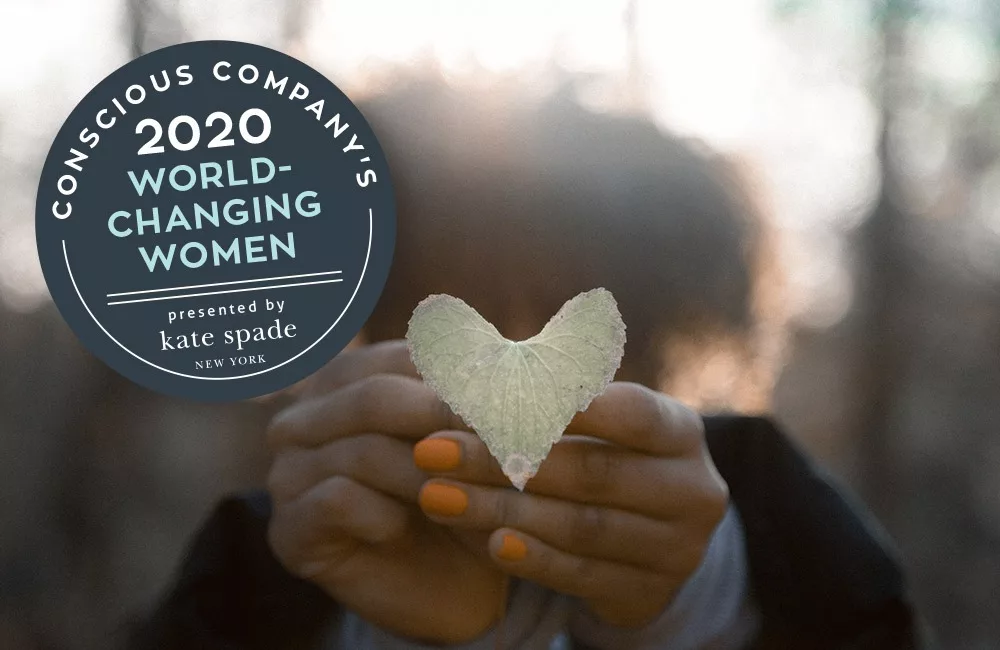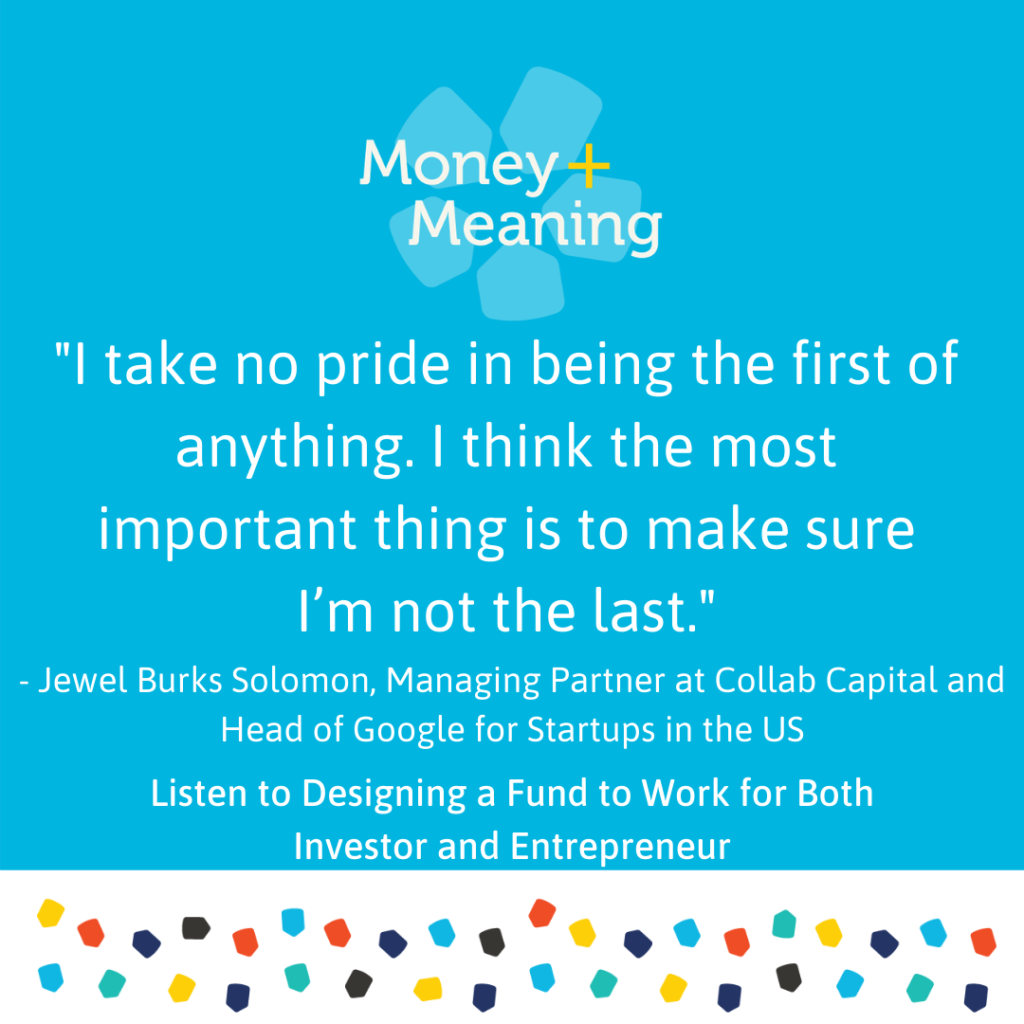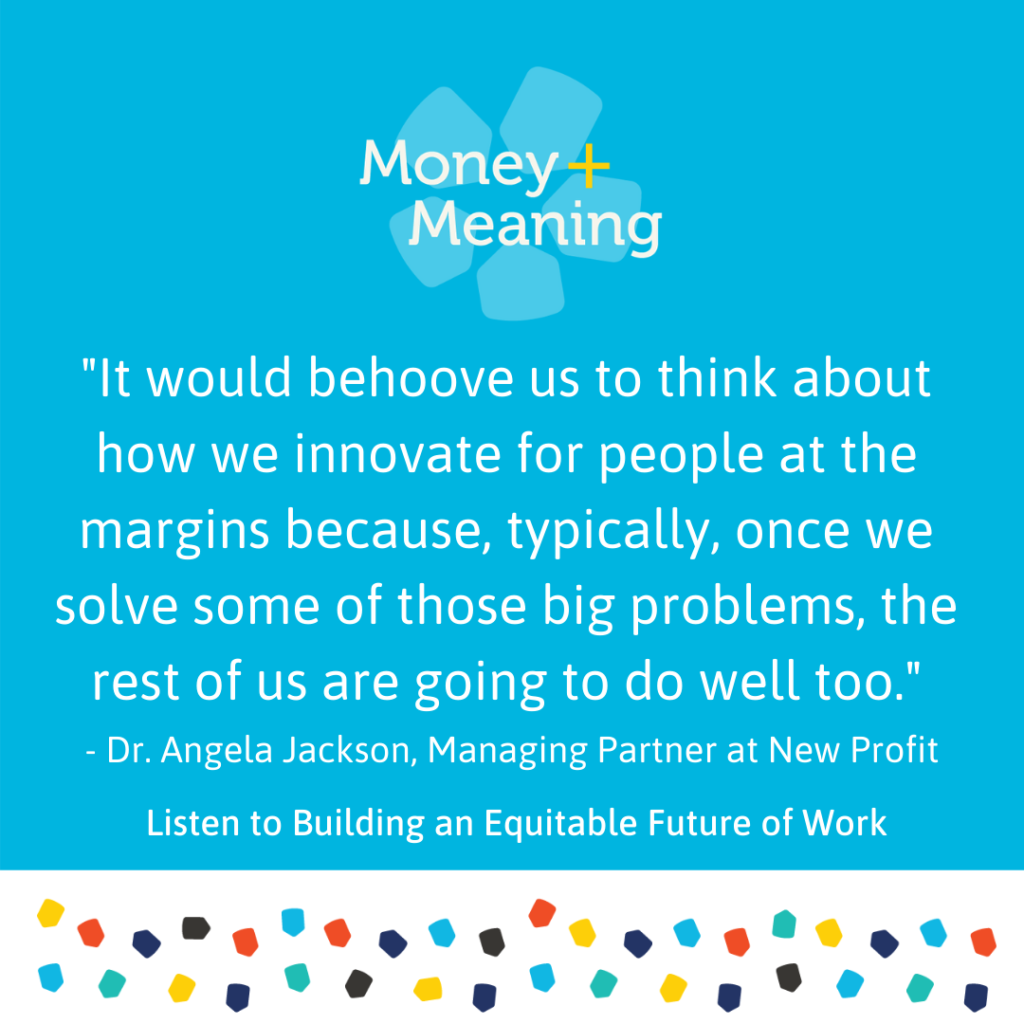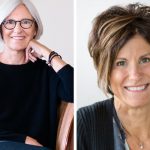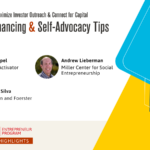Another year, another list of incredible women-identifying leaders in conscious business. In the previous two installments, we opened with real talk about the overwhelming gap between our planet’s population and how misrepresented those demographics are in positions of power within for-profit organizations. Since the 2019 World-Changing Women list, not much has changed when it comes to gender equality in the private sector. The number of Fortune 500 companies that have a female CEO is still abysmal, and women are still underrepresented in all levels of business. But, while we acknowledge there are plenty more steps to take, we’re taking a moment to look back and appreciate just how far we’ve come.
According to the National Association of Women Business Owners, there are a total of 12.3 million women-owned businesses in the US. This number becomes even more incredible when you realize that there were only 402,000 women-owned businesses in 1972. During the decade between 1997 and 2007, women-owned businesses added half a million jobs to the US economy. In 2018, women started a net total of 1,821 new businesses every day; 64 percent of those businesses were started by women of color. Businesses run by women produce $1.8 trillion a year, according to the Women’s Business Enterprise National Council. All this to say: we’re getting somewhere.
Perhaps our optimism is due to this shiny new decade now on the calendar, or maybe it’s because this year our inboxes were flooded with nominations for the 2020 list of Word-Changing Women in Conscious Business. We’re talking nearly five times as many nominations than last year. And each time we painstakingly read through a submission, we found ourselves enthusiastically nodding our heads — until we realized that, although we no longer deal with pesky page counts, we just don’t have the bandwidth to cover hundreds of women’s stories in one list. So, our team whittled the list down to the yeses based on the impact they were making on the world, their demonstrated leadership in their respective fields, and the scope of their work and ambitions. The 43 women below are so holistically inspiring to us that we dissolved the categories — entrepreneurs, C-Suite executives, thought leaders, intrapreneurs, and impact investors — and focused on their most important work in social enterprise and beyond. These women all exemplify how purpose-driven leaders can lead the shift to a more equitable and inclusive stakeholder capitalism.
Our aim is not only to honor these leaders and their achievements but also to connect you, dear reader, with like-minded women in conscious business — a sort of virtual World-Changing Women’s Summit. If you like what you see, join us January 29 – 31 at The Lodge at Sonoma to dive even deeper into how to streamline and scale our companies — as well as our support systems and representation in business, as a whole.
This list of pivotal players is presented by our friends-in-purpose Kate Spade New York. “At Kate Spade New York, we empower women and girls to be the heroines of their own story,” says the Kate Spade New York team. “Our social-enterprise work, based in Rwanda, is at the heart of our social impact portfolio. We’re so inspired by the female leaders on this list, who are all heroines of their own stories, changing the world one conscious business at a time.” (If you’re not familiar with how the Kate Spade brand is more than a handbag, make sure you read up on how their on purpose program is radically transforming an entire community. Like we said: there are a lot of world-changing women on the scene, and we’re here for it.)
Without further ado, and in no particular order, please enjoy Conscious Company’s 2020 list of World-Changing Women in Conscious Business.

1. SUSAN MCPHERSON
Founder & CEO, McPherson Strategies
New York, New York
In 2005, as part of a delegation from the Business Council for Peace, Susan McPherson visited Afghanistan and worked firsthand with women entrepreneurs, mentoring, training, and connecting them with global business communities. “It was the first time I experienced business being a force for good in the world and truly making a positive difference,” she says. In 2013, she founded McPherson Strategies communications consultancy focused on the intersection of brands and social impact. McPherson and her team bring decades of experience helping organizations develop effective programs and communications frameworks, forge partnerships, increase visibility, and inspire meaningful action.
Just one example: When extreme abortion bans began sweeping the country this past spring, McPherson Strategies jumped into action with a coalition of reproductive rights organizations, including client NARAL Pro-Choice America, to orchestrate a response from the corporate community. More than 185 CEOs and business leaders from a wide range of companies, including Square, Yelp, Bloomberg, Glossier, Warby Parker, Zoom, Postmates, and Slack, signed a letter that appeared as a full-page ad in The New York Times and on DontBanEquality.com, which sent a clear message: you can’t have equality in the workplace if people don’t have access to reproductive health care. In the following week, an additional 150 CEOs signed onto the letter, increasing the number of signatory companies to more than 330 and representing a combined 129,000 employees. “Don’t Ban Equality” trended nationally on Twitter and garnered widespread media coverage, generating an estimated 5 billion impressions. McPherson Strategies was recognized as one of the PR Power 50, Observer’s annual list of the most powerful PR firms, and in 2018 McPherson was named one of Real Leaders’ 100 Visionary Leaders.
What’s one key piece of advice you’d give to other women looking to excel as a leader in conscious business?
“Magic happens when you connect people. I credit much of my success to always making it a point to truly get to know people and help them whenever I can. It’s become the backbone of our firm’s success. Women founders in particular are often highly skilled at making connections that can help advance their businesses.”
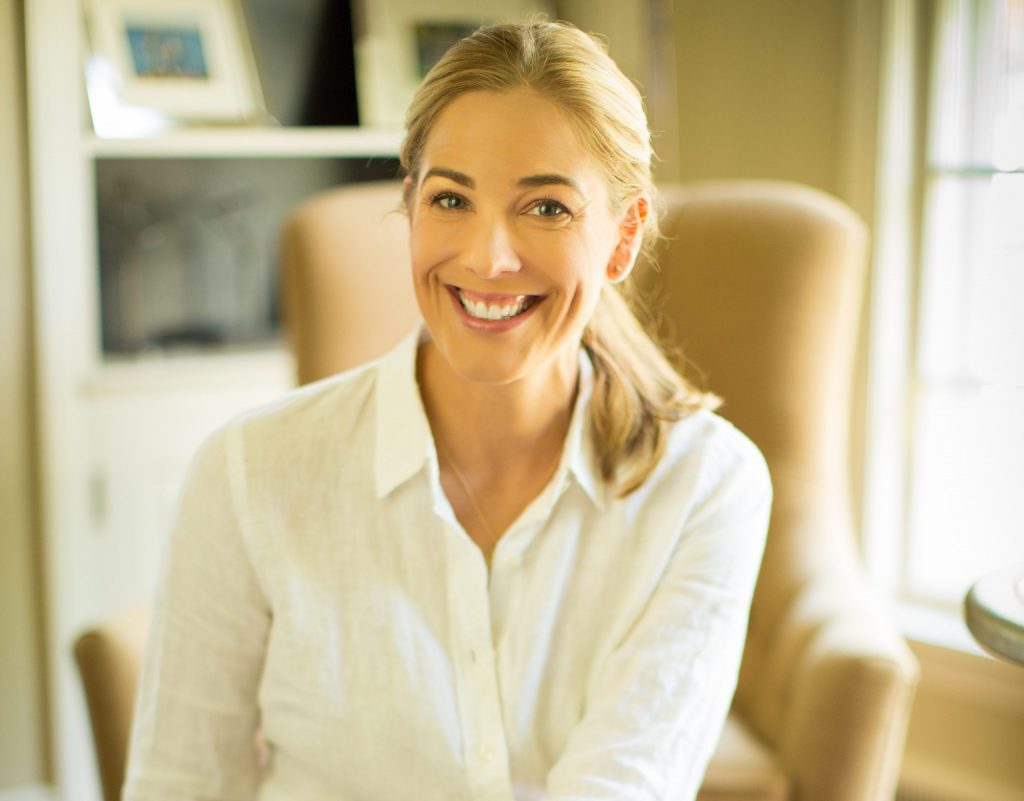
2. AMY JO MILLER
Co-founder & COO, Goods Unite Us, Inc.
Madison, Wisconsin
Amy Jo Miller is empowering consumers to vote with their wallets. As a serial entrepreneur, Miller always wanted to work with good people solving a big problem that would have a positive impact on society, and after meeting Brian Potts at a networking event, and shortly thereafter, Abigail Wuest, the trio got to work making Goods Unite Us a viable business. This was in December 2017 — and the rest is history. Goods Unite Us runs political background checks on brands and companies, and the platform provides an easy way for users to search for a brand or company that aligns with their beliefs.
“After the 2016 election I think a lot of people felt powerless, even angry, even thinking that their vote didn’t matter,” says Miller. “The Goods app is a way for people to exercise their voting power every single day, through everyday purchases.” To date, the company has scaled from 5,000 monthly users to more than 100,000 and has been featured in numerous publications including Oprah’s O Magazine and Bustle.
On top of serving as COO of Goods Unite Us, Miller has also co-organized a Women Investing In Women event in Madison. “Females have made significant progress both in terms of founding companies and investing in companies,” she says, “but there’s still progress to be made. Events like ours help to facilitate connections and to bring awareness to the fact that the gap still exists.”
What makes a good leader?
“Authenticity and self-awareness. We are all flawed human beings; it’s part of what makes some of us so good at certain things but terrible at others. Leading from a place of realness, to me, is authentic and appreciated.”
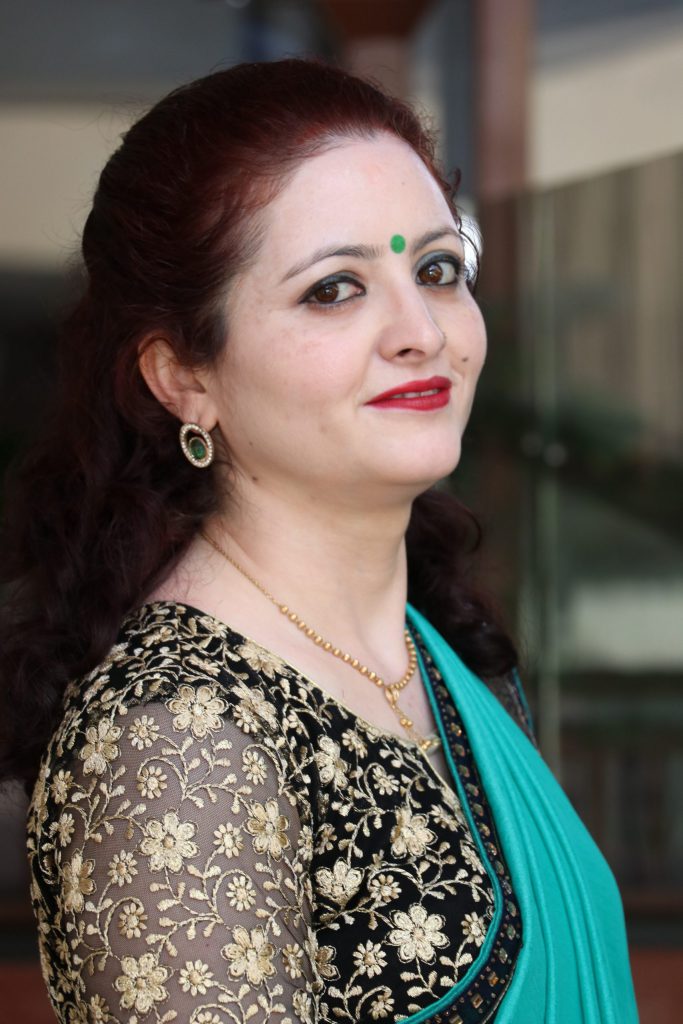
3. USHA KHATIWADA
CEO, NRN Infrastructure and Development Limited
Bhotechaur, Sindhupalchok, Nepal
Usha Khatiwada cares deeply about the welfare of Nepal and is dedicated to deploying capital to the sustainable development of the nation’s hydropower sector. She serves as CEO of NRN Infrastructure and Development Limited (NRNIDL), which is located in Kathmandu and was registered in September 2012 under the Company Act 2063 with the main motive of collecting investment in hydropower. To date, Khatiwada has secured investment for four national hydropower projects and has built a strong management-development pipeline as well as a world-class leadership team.
In addition to her work in the renewable-energy realm, Khatiwada has also set an example to young Nepali women who aspire to create a positive impact through business. “Nepal is a developing country where patriarchy is at its height,” says her nominator. “For women to be at the forefront is normally a nightmare. Being from a very remote village of Nepal, Khatiwada’s struggles and dedication has brought her to the position of CEO at the age of 38, which is very inspiring to younger generations.”
What is the role of business in making the world a better place?
“Creativity has always been at the heart of business, but until now it hasn’t been at the top of the management agenda. The ability to create something novel and appropriate, creativity is essential to the entrepreneurship that gets new businesses started and that sustains the best companies after they have reached global scale. Because creativity was considered unmanageable — too elusive and intangible to pin down — or because concentrating on it produced a less immediate payoff than improving execution, it has not been the focus of most managers’ attention.”
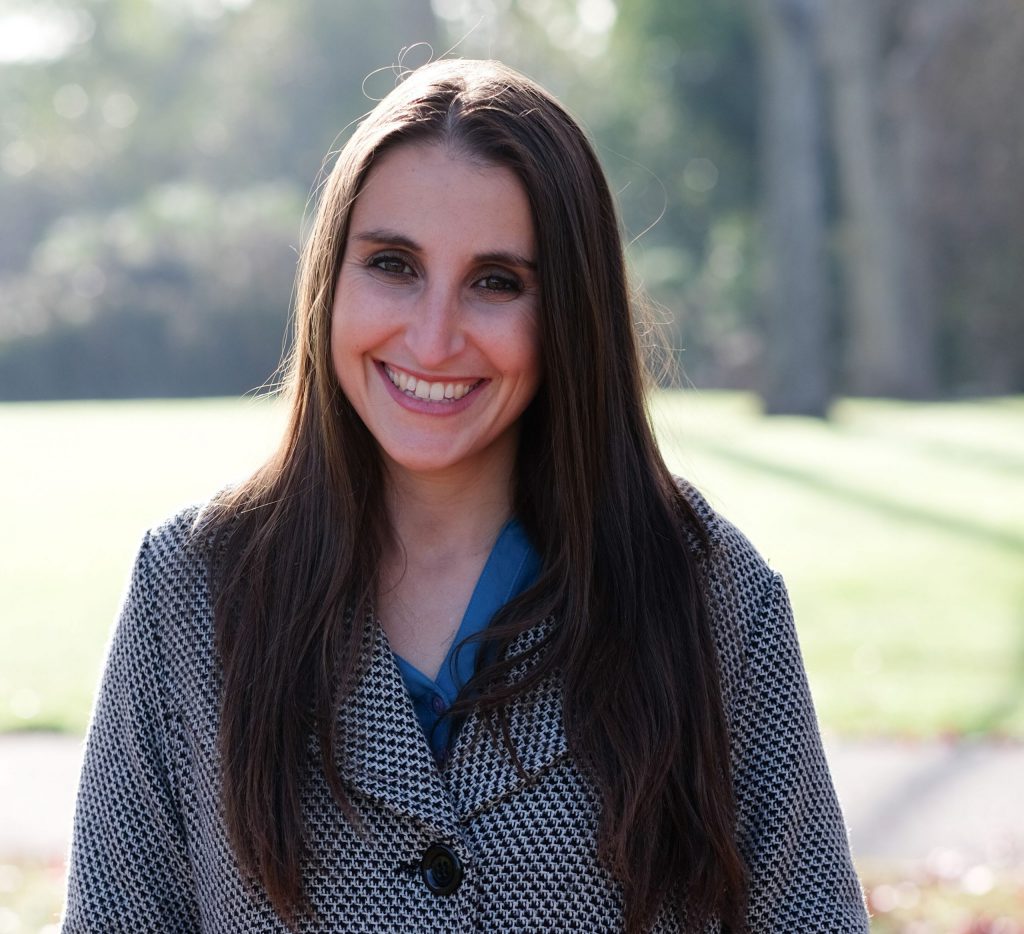
4. STEPHANIE COURTILLIER
Founder, Integrous Women
Rancho Santa Margarita, California
“Someone should do something about this.” That’s the thought that led Stephanie Courtillier to found Integrous Women in 2017, after observing the cycle of trauma in Guatemalan communities as well as the lack of local support for women. Driven by its mission to empower the women in these communities to “leave a legacy with integrity and achieve the impossible,” Integrous Women provides training in topics related to personal power, professional development, and philanthropy, and hosts a wide array of events including Impact Socials, to promote local nonprofits and help build capacity.
In less than two years of its women-led business, Integrous Women has trained more than 300 women (and some men) and built more than 100 active local and global partnerships. As a result of its Community Capacity Program with partner orphanage, Esperanza y Futuro, Integrous Women has seen the first accessible female teen drug and addiction rehabilitation center founded in Guatemala.
What makes a good leader?
“I’ve always subscribed to the belief that the best leader is not one who has the most followers, but one who creates the most leaders. I strive every day — and in every program and offering we have at Integrous Women — to create more conscious, confident, and soulful leaders who, in return, will build a better world for all.”
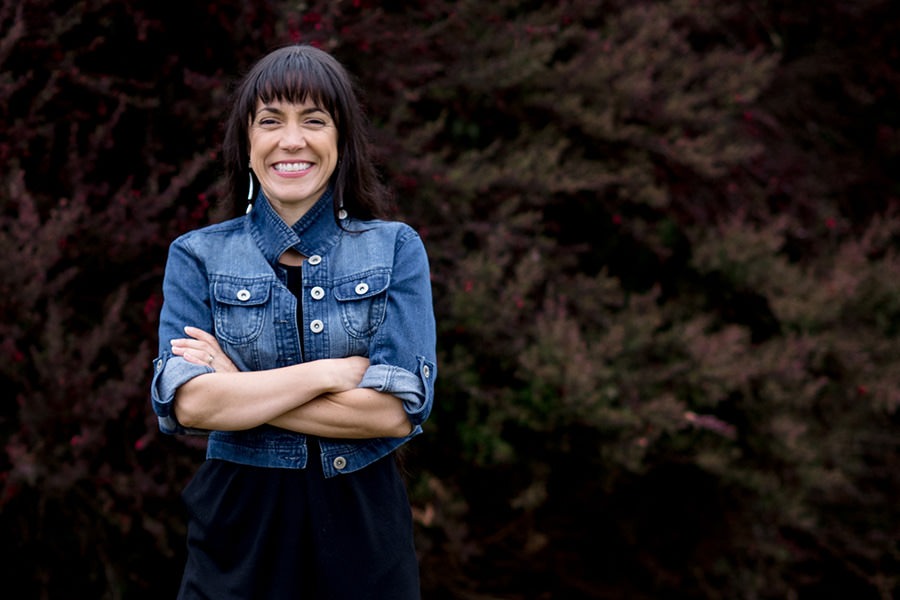
5. AMY CORDALIS
General Counsel, Yurok Tribe
Klamath, California
In 2002, more than 70,000 adult salmon died in the Klamath River in the Yurok Reservation within a five-day period, making it the largest fish-kill in American history. “The Yurok people have relied on salmon for survival since the beginning of time,” says Yurok citizen and lifelong salmon fisher Amy Cordalis. “Their death was a form of ecocide to the Yurok people; we grieved their death.” Thus, she vowed to dedicate her life’s work to saving the Klamath River. As the first Yurok Tribal member and woman to be General Counsel of the Yurok Tribe, Cordalis supports the Tribe’s mission to preserve and restore the human, cultural, and legal rights of the Yurok people.
The Yurok Constitution requires the Tribe to conduct its affairs consistently with their cultural values, which requires sustainability and balance with the natural world. The Tribe’s carbon sequestration project was recently recognized by the United Nations, receiving the Equator Prize for leading sustainability projects worldwide.
In her role as General Counsel, Cordalis has successfully helped file Endangered-Species-Act lawsuits, resulting in improved instream-flow regimes for salmon on the Klamath River, and has helped the Yurok Tribe recover over 60,000 acres of aboriginal land to use as a salmon sanctuary. She led the Yurok Tribe to recognize personhood rights to the Klamath River, which is the first river in North America to have such rights, and she oversaw the successful adoption of several tribal codes to assert and exercise the Yurok Tribe’s sovereignty. Cordalis is now working toward restoring more than 300 miles of salmon-spawning habitat and rebuilding a historic ecosystem by removing four dams in the Klamath River — the largest dam removal project in history.
What is the role of business in making the world a better place?
“To produce sustainable products that allow consumers to live in balance with the natural world.”
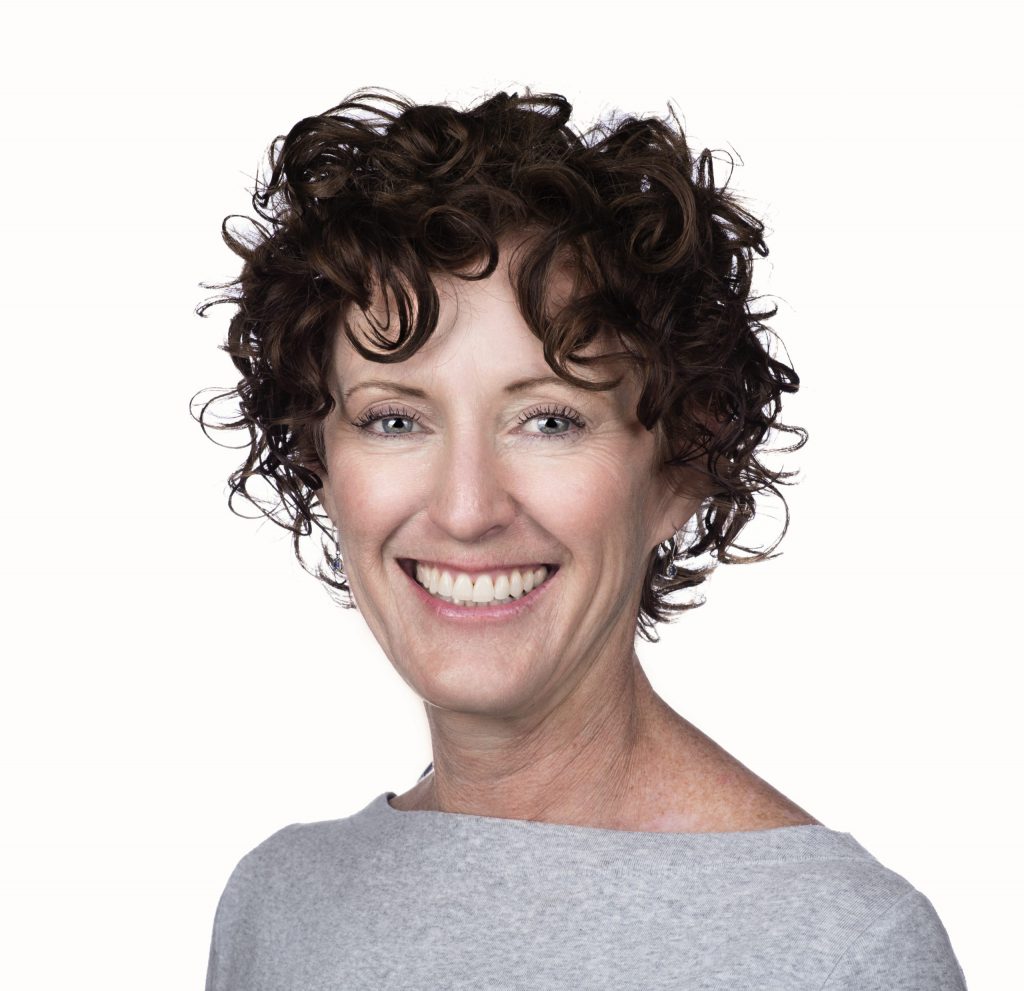
6. TAMRA RYAN
CEO, Women’s Bean Project; Interim CEO, Social Enterprise Alliance
Denver, Colorado
Tamra Ryan went from volunteer to CEO of Women’s Bean Project, an organization that hires women who are chronically unemployed and provides them with steppingstones to self-sufficiency by making nourishing products. Not only did she transform the company from a state of financial crisis to a thriving and nationally recognized social enterprise, but in doing so she has helped hundreds of women create new lives for themselves and their families.
For 30 years Women’s Bean Project has been helping women create transformational change through the operation of a food business. “We started with one bean soup mix,” Ryan says, “and today we have about 50 different food items that we sell across the US and online through some of the country’s largest retailers. We are proud that we have stayed true to the original vision of changing women’s lives by helping them learn the skills to get and keep employment through a transitional job.”
Prior to coming to the Bean Project, women typically have not held a job longer than a year in their lifetimes. The average age is 39. Seventy percent of women complete the company’s seven-month program, and all go on to jobs or education at the end. A year later, 95 percent are still employed.
In addition to her role with Women’s Bean Project, Ryan is the interim CEO of Social Enterprise Alliance, the national membership organization and key catalyst for the rapidly growing social enterprise movement in the United States. She is also author of “The Third Law,” a book that echoes Newton’s third law of motion, for every action there is an equal and opposite reaction, in reference to the societal obstacles and internal demons that hinder chronically unemployed and impoverished women from working to change their lives — and how to combat those roadblocks to break the cycle of poverty.
What makes a good leader?
“A good leader is able to paint a picture of a vision for the future and then enlist others to go on the journey with her. A truly conscious leader recognizes that it is not about her, but that the team is looking to her for inspiration and direction. Keeping her ego in check is essential.”
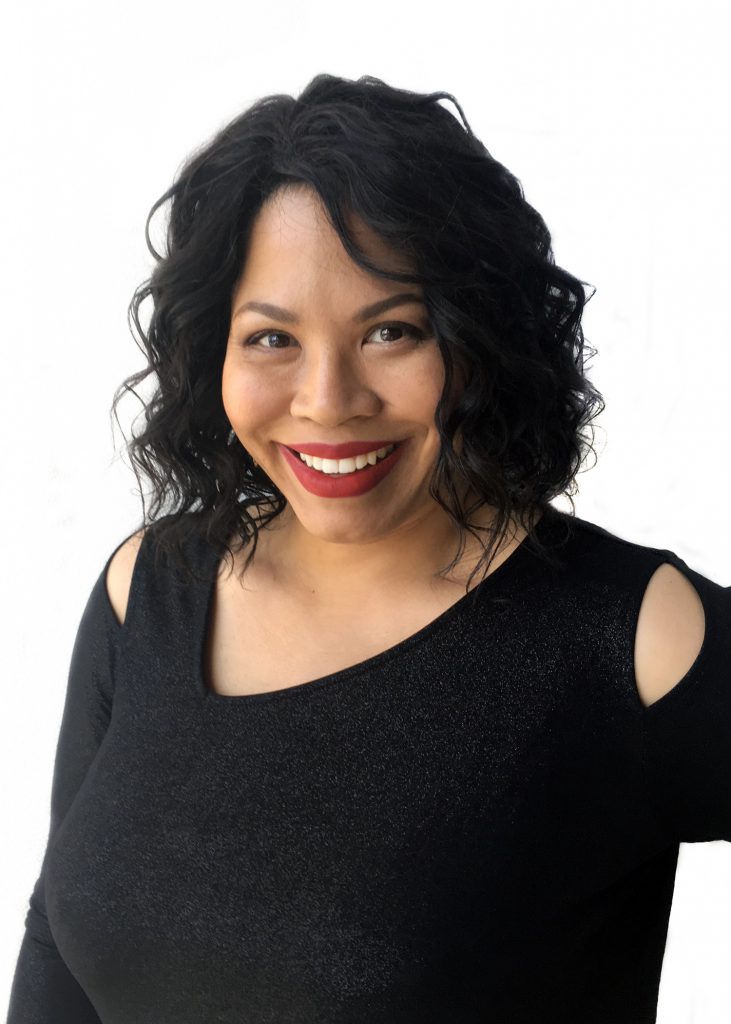
7. CHERYL CONTEE
CEO, Do Big Things
Co-founder, Cygnus
Co-founder, Attentive.ly (at Blackbaud)
San Francisco, California
Cheryl Contee believes in the power of human-centered, authentic voices to create a better world — online and offline. She sits at the helm of Do Big Things, a digital agency founded in 2018 that creates “a new narrative and new tech for a new era focused on causes and campaigns.”
In addition to its office-wide impact — its staff is comprised of 70 percent women, 50 percent people of color, and an all-minority team of developers — Do Big Things is, well, living up to its name. The company has worked with two presidential candidates and is currently working with some of the biggest Senate campaigns around, including Lieutenant Colonel Amy McGrath, who is running for Senator in Kentucky against Mitch McConnell. With the help of Do Big Things, McGrath’s campaign had the biggest first-day fundraising haul of any Senate candidate of either party in American history. In their first quarter, Team McGrath spent over $1.3 million online — and saw a return on investment over 150 percent. Do Big Things also works with foundations including Open Society and Silicon Valley Community Foundation, as well as powerful nonprofits such as Everytown for Gun Safety, Friends of the Earth, and NAACP. In 2019, Contee co-founded a new SaaS startup incubated within Do Big Things, Cygnus, a data intelligence dashboard providing insights for nonprofits and candidates.
Contee holds many accomplishments beyond leading Do Big Things. She co-founded social marketing software Attentive.ly at Blackbaud, the first tech startup in history with a black female founder on board to be acquired by a NASDAQ-traded company in July 2016. Her prior company, Fission, helped write the early source code for Crowdtangle, earning sweat equity in a successful social enterprise startup acquired by Facebook in December 2016. She also co-founded the tech inclusion initiative #YesWeCode and wrote the Amazon bestseller “Mechanical Bull: How You Can Achieve Startup Success” to encourage more women and minorities to consider tech entrepreneurship.
What makes a good leader?
“You can’t be a leader unless someone is willing to follow. These days, anyone can lead — leadership is dynamic and fluid — so any true leader must see themselves as a leader of leaders. How are you inspiring and encouraging leadership on pieces of a project or venture such that others trust you to lead on the whole? Are you someone others can admire and model their own conduct upon? That is the demand now of leaders in the 21st century.”
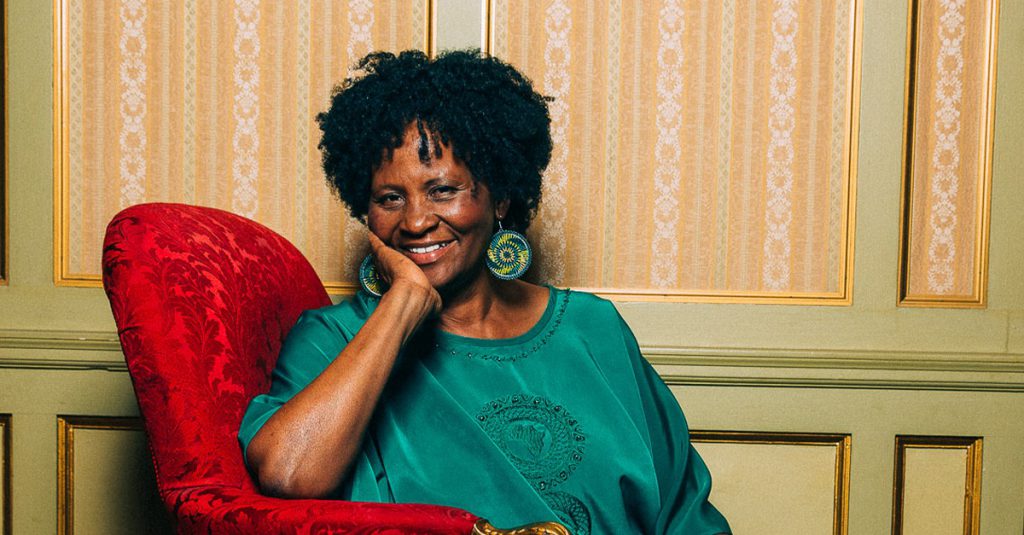
8. DR. TERERAI TRENT
Founder & President, Tererai Trent International Foundation
Harare, Zimbabwe
Dr. Tererai Trent is one of today’s most internationally recognized voices for quality education and women’s empowerment. Distinguished as Oprah’s “all-time favorite guest,” Trent is a scholar, humanitarian, motivational speaker, educator, and mentor. In 2011 she founded Tererai Trent International, a foundation whose mission is “to lead the development and growth of an improved education system supported by socially engaged business models that boost local economies while improving community livelihoods.”
Trent grew up in a cattle-herding family in rural Zimbabwe, where she dreamed of getting an education, but was married at a young age and had three children by the time she was 18. Undeterred by traditional cultural norms, Trent taught herself to read and write from her brother’s schoolbooks. As a young mother without a high school diploma, she met a woman who would profoundly impact her life: Jo Luck, president and CEO of Heifer International. She told Trent, “If you believe in your dreams, they are achievable.” With Jo Luck’s inspiration and her mother’s encouragement, Trent wrote down her dreams of going to America for higher education, sealed them in a tin can, and buried them under a rock, ultimately redesigning the blueprint of her life.
To date, the Tererai Trent International Foundation’s 12 schools have provided 39,000 students in rural Zimbabwe access to education. Trent is working on shifting the narrative from African countries and charitable facilities receiving donation to actively becoming communities that create sources of income and expand entrepreneurial endeavors for the people in those communities. She is also the author of “The Awakened Woman: Remembering & Reigniting Our Sacred Dreams.”
What is the role of business in making the world a better place?
“In this day and age where enterprise runs our economic world, we need social entrepreneurs to work diligently to create businesses and organizations that create equity and that solve the world’s deepest issues.”
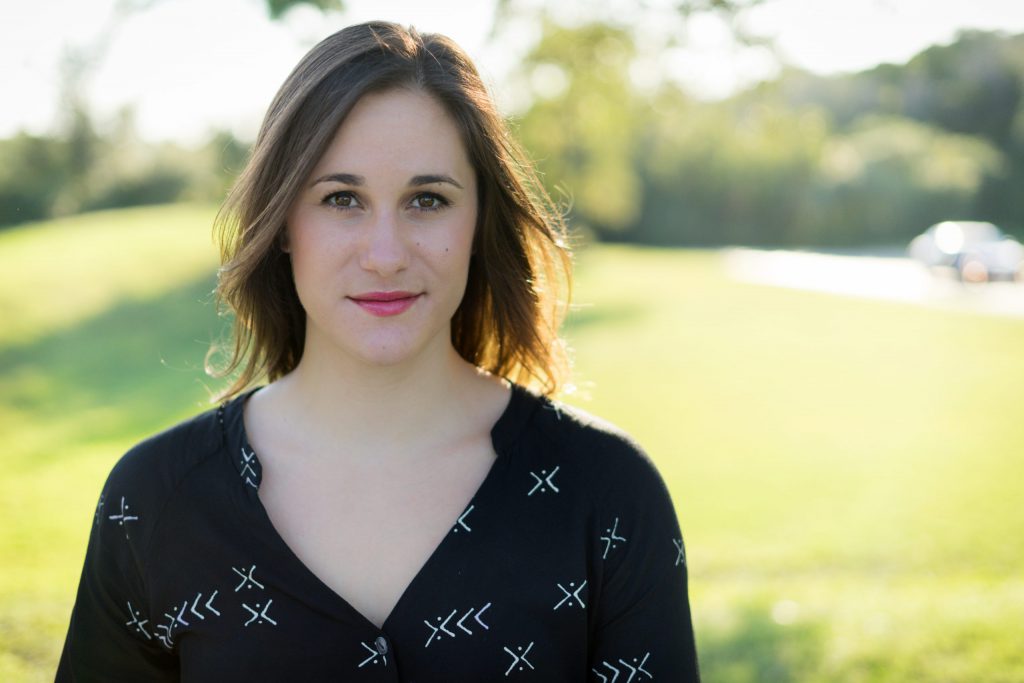
9. ZOE SCHLAG
Managing Director, Techstars
Austin, Texas
In 2012, Zoe Schlag was living in India working with early-stage entrepreneurs building businesses to solve social and environmental problems with UnLtd India. The company’s focus was strictly on backing exceptional individuals and equipping them with the resources and support they need — and watching the results convinced Schlag of this approach backing founders early. Now as Managing Director at Techstars — a Boulder, Colorado-based startup accelerator, funding, and mentorship network — Schlag lives this philosophy on a daily basis.
In 2017, Schlag launched Techstars Impact, the company’s first fund and program investing in for-profit, mission-driven companies building technologies to solve pressing social and environmental problems. “Techstars is the worldwide network that helps entrepreneurs succeed with 46 accelerator programs around the world” Schlag says, “and our Techstars Impact program marked our formal entrance into the impact investment world.”
Thanks to Schlag, 73 investments have been made into impact companies since January 2018, making it one of the most active early-stage impact venture-capital funds in the country. In the program’s first year of investing, its portfolio companies impacted 3.7 million people, reduced 14,000 tons of carbon dioxide emissions, prevented 768,000 pounds of food waste, and enabled $6.2 billion in second-tier diversity spend.
What is the role of business in making the world a better place?
“I believe that our deepest problem sets represent our greatest opportunities; entrepreneurs have the potential to build a better world.”
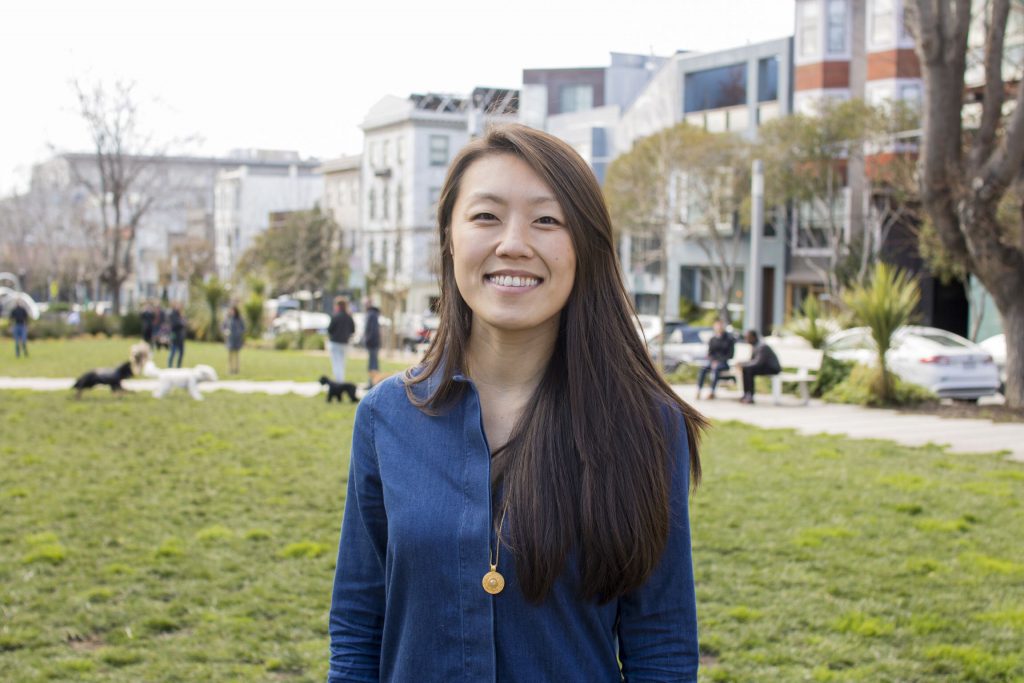
10. NANCY YU
Co-founder & CEO, RDMD
San Francisco, California
Nancy Yu has always found herself at the intersection of scientific research and bringing science to the market. She started her career in lab research and quickly became interested in how scientists realized the impact of their discoveries. In 2017, after working for several years in healthcare investment banking and private equity, turning down an offer to attend Harvard Business School, and leading Corporate Development and Special Projects at 23andMe, Yu co-founded a medical data science company, RDMD.
Yu has always been interested in ushering new science into the world and empowering patients to play a direct role alongside drug researchers. As a result, RDMD is a research platform that makes it easier for patients and families to jumpstart and accelerate new therapies for rare disease.
Under Yu’s leadership as CEO, RDMD has raised $3 million in funding from Lux Capital, Village Global, and a network of healthcare and technology leadership, and has empowered patients with many rare conditions to unlock access to research information from over 1,000 hospitals. RDMD was also named by CBInsights as a Top 150 Digital Health Company and was named by Forbes as one of the 10 Recent Examples Of Powerful Innovation In Healthcare.
What makes a good leader?
“A truly conscious leader is an anthropologist — one who is genuinely curious and cares about her team on an individual level, as people. She will have difficult conversations and be radically transparent about her expectations, feedback, and feelings with every member of the team. She will do this in a way that inspires her team to challenge themselves, invest in their own growth, and elevate the culture of their own teams.”
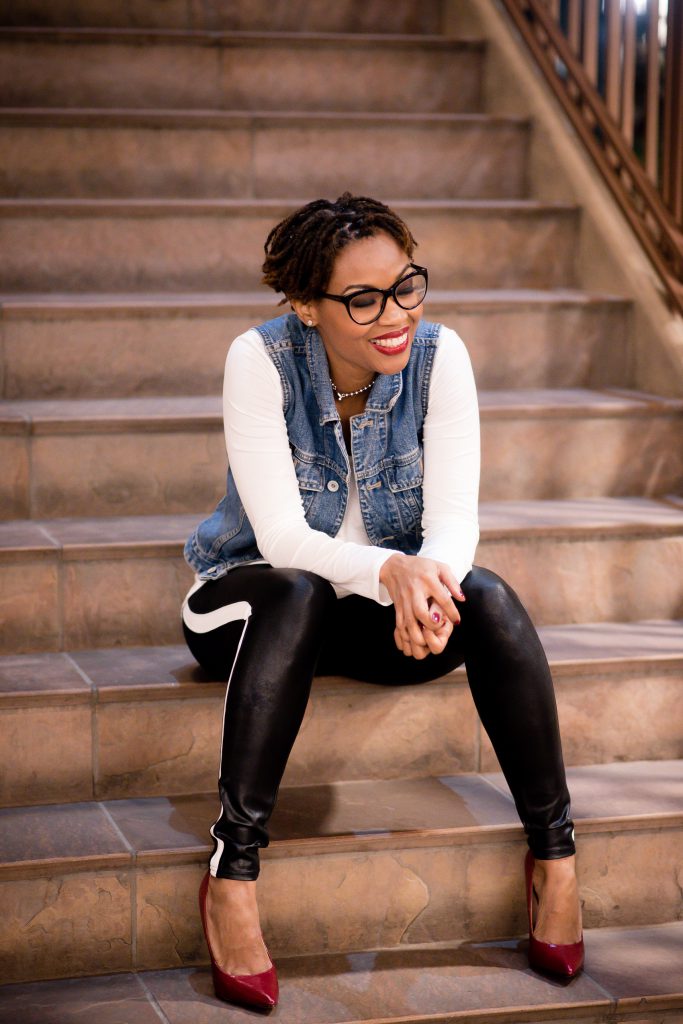
11. MAKISHA BOOTHE
Founder & Head Business Coach, Sistahbiz Global Network
Denver, Colorado
Makisha Boothe is bringing awareness to the disparities and inequities that impact Black women entrepreneurs, who are the fastest-growing group of entrepreneurs in the country but among the lowest-earning and least-funded. In 2018 Boothe launched the business accelerator Sistahbiz Global Network, a nonprofit that provides affordable options for coaching, training, and services to help Black women entrepreneurs build scalable, sellable models and access the back-office support, financial capital, and social capital they need.
Sistahbiz Global Network is comprised of a handful of programs. The Sistahbiz Loan Fund provides funding to underrepresented and under-resourced Black women entrepreneurs who have not been able to secure traditional funding or attract investors. The Sistahbiz Business Academy provides training and coaching events that serve as a safe and nurturing space for Black women to heal and grow as entrepreneurs, as well as manage challenges unique to this population. The Sistahbiz Clinic is a back-office support system that goes beyond consulting to done-for-you services for entrepreneurs who are often bootstrapping and unable to afford critical technical assistance.
While the organization is still officially in year two, Sistahbiz has raised over $500,000 and seen more than 200 women complete Sistahbiz bootcamps, coaching, and cohort programs in the past year.
What’s giving you hope?
“The women in the Sistahbiz community. The way they care for, stand in the gap, hold space for each other. The community is a high vibration sisterhood. It fills me up.”
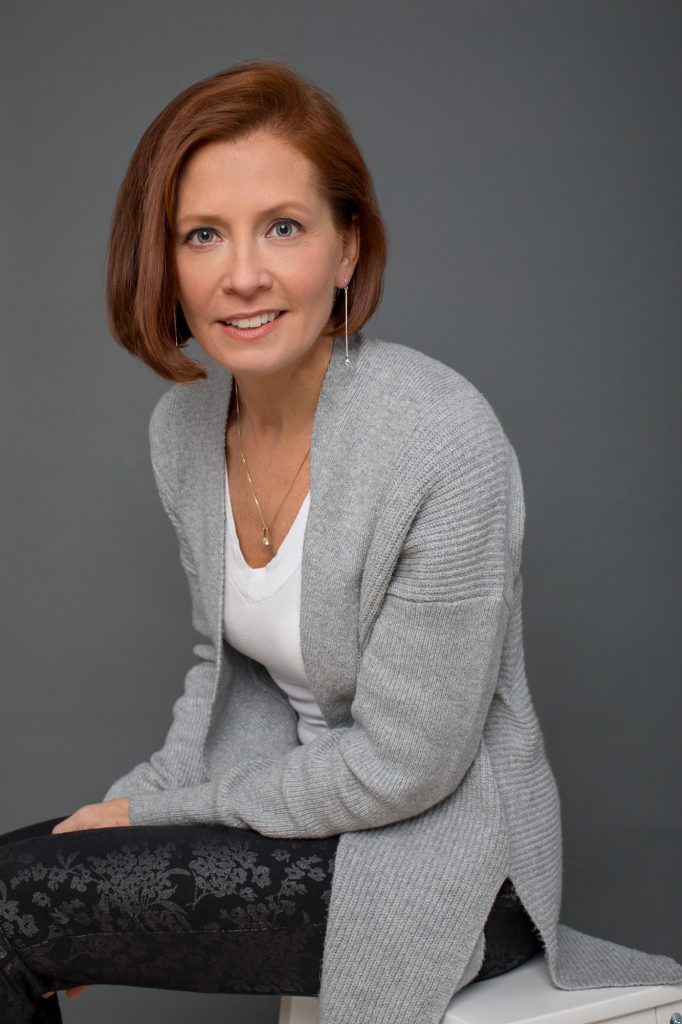
12. JULIANNE ZIMMERMAN
Managing Director, Reinventure Capital
Boston, Massachusetts
Julianne Zimmerman has been leveraging business as a force for good for more than 25 years. Her resume includes roles such as co-founder of a seed-stage investment firm, VP of Communications at a utility-scale energy storage company, co-founder and Director of Business Development of a biofuel company, VP of Engineering at a water purification company, and trusted mentor, board member, advisor, and consultant. Along the way, Zimmerman has experienced and seen firsthand how angel, seed, and venture investors routinely overlook and discount entrepreneurs who are women and/or people of color.
“When Reinventure Capital President Ed Dugger — a pioneer in impact investing, and one of the few veteran Black VCs — recruited me to join him in raising and operating this fund,” Zimmerman says, “it was a privilege and honor to accept the challenge.”
As Managing Director of Reinventure Capital, Zimmerman speaks and writes extensively about innovation, entrepreneurship, and social impact, and is actively raising an expansion-stage fund to invest in companies led by people of color and/or women. On top of that, she created and teaches a top-rated Innovative Social Enterprises course at Tufts University, around which Tufts is launching a new Social Impact minor and a new Social Entrepreneurship concentration in 2020, and also serves as a volunteer mentor with entities like MIT Venturing Mentoring Service, advising scores of founders in the US and abroad.
What’s one key piece of advice you’d give to other women looking to excel as a leader in conscious business?
“First, be really clear about understanding your own purpose, motivations, strengths, and liabilities. Next, surround yourself with people who share your purpose but challenge you to grow, who complement your strengths and liabilities. Ask questions and ask more questions and always seek to ask better questions; keep learning from everything and everyone. Test your ideas and assumptions constantly against the available evidence, and discard what doesn’t serve the purpose.”
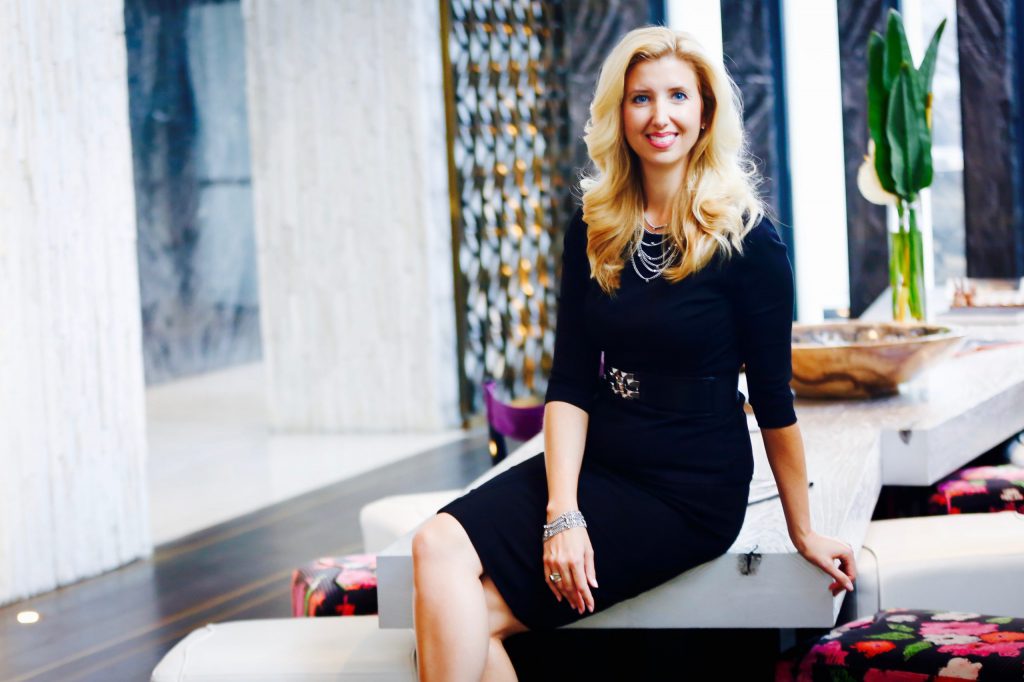
13. TRACI FENTON
Founder & CEO, WorldBlu, LLC
Boulder, Colorado
In 1997, during her senior year of college, inspired by the idea that we can build better companies if they are based on the principles of freedom and organizational democracy rather than fear and control, Traci Fenton founded WorldBlu®, a membership company whose purpose is to transform the way businesses are led with Freedom at Work™.
What is the role of business in making the world a better place?
“I believe, and it’s what we’ve built our business on, that we can advance and grow world-class businesses with freedom and organizational democracy, and we can advance and grow freedom and democracy in the world by the way we run our businesses.”
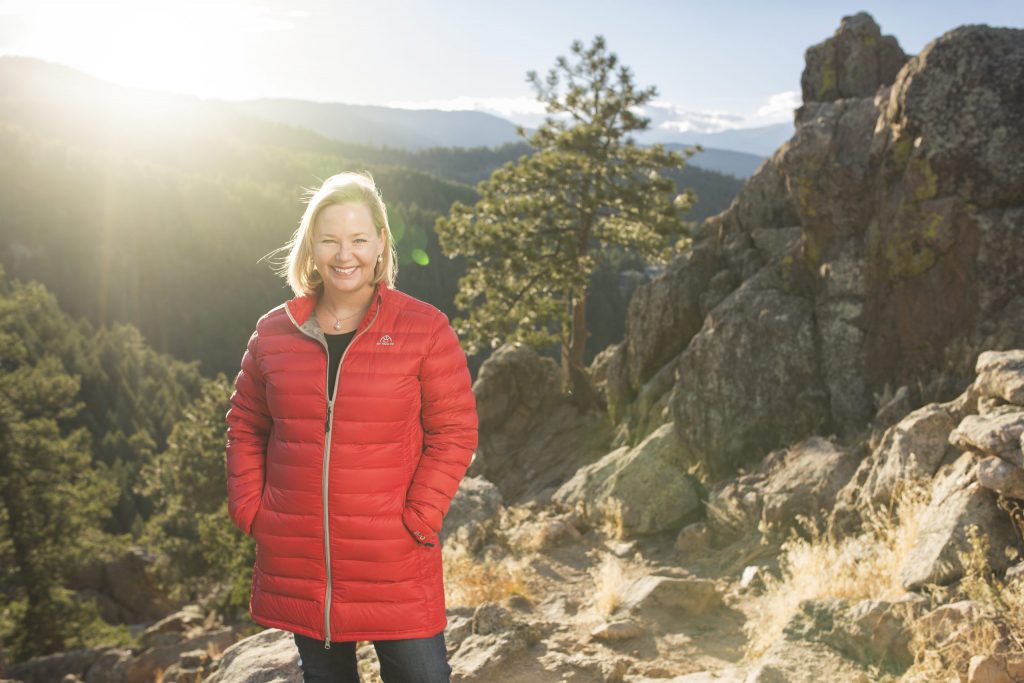
14. KIM COUPOUNAS
Global Ambassador, B Lab
Denver, Colorado
In 1998, Kim Coupounas founded and built a game-changing outdoor company and brand that was also one of the earliest B Corps: GoLite — a market disruptor and innovator that fundamentally shifted the outdoor industry in terms of channel distribution, technical performance, and sustainable business practice. The path to her current position as Global Ambassador of B Lab — a nonprofit whose initiatives include B Corp Certification, administration of the B Impact Management programs and software, and advocacy for governance structures like the benefit corporation — was, in her own words, a natural progression.
At B Lab, Coupounas engages CEOs and other leaders to mobilize for collective action, driving impact and systems change on some of the most pressing issues of our time, including climate change and gender equity. From 2014 to 2018, she led a collaborative effort to grow the community of B Corps and other responsible businesses in Colorado and to foster a vibrant ecosystem of responsible business practice with the goal of making Colorado a shining example of an innovation- and impact-based economy. This “place-based emergence” demonstration project is being emulated and replicated in other US states and regions around the world. To date, there are more than 3,000 B Corps in 60 countries and 170 industries.
Coupounas currently serves as co-chair for the B Climate Task Force, representing B Lab entities worldwide that are setting bold climate commitments and targets for global B Corp community, including over 500 B Corps that will commit to net zero emissions by 2030, far in advance of the Paris agreement targets. She co-developed, launched, and leads the B Corp Climate Collective, a group of more than 300 climate-leading B Corps and other companies using advocacy, cross-sector collaboration, corporate action, and capital markets to stop emissions and drawdown carbon. And she co-developed and co-leads WeTheChange: Women Leading Business for Good, a group of more than 800 empowered women leaders of Certified B Corps and other purpose-driven enterprises working to create a radically inclusive and richly regenerative global economy.
What’s one key piece of advice you’d give to other women looking to excel as a leader in conscious business?
“We’re living in unprecedented times. The need for our leadership and hard work is greater than ever in history. And it is both a marathon and a sprint. This work — to make the world better — can be deeply meaningful but it is also hard. It can beat us down, demoralize us, even send us over a non-recoverable cliff. Daily self-care is absolutely mandatory.”
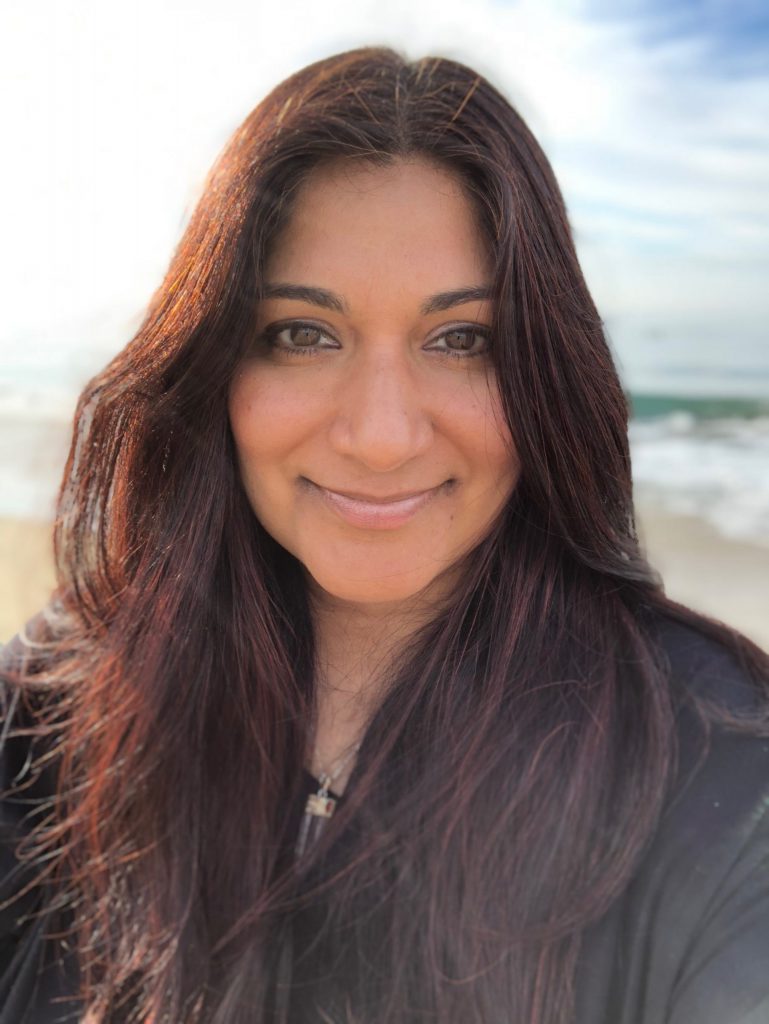
15. ANI CHAHAL HONAN
Co-founder, Yunity
Seattle, Washington
With 22 ventures and counting, serial entrepreneur Ani Chahal Honan has learned just how harmful the old business-as-usual paradigm can be. “I remember one of my advisors telling me to focus on the company’s exit,” she says, “to stop ‘confusing’ people with ‘altruistic models’ and that I could ‘save the world’ after I made the money for the company.” After a season of burnout, Honan committed to driving positive global impact while embodying a tangible sense of joy and purpose in her pursuits. So, she co-created Yunity, an advisory, startup-incubator, and venture capital ecosystem with a mission “to inspire, energize, and empower leaders to create businesses and solutions that commit to a higher purpose, aligned to a triple bottom line: people, planet, and profit.”
Yunity advises, funds, and seeds companies that are driving impact globally, using innovative technologies and business models, with a focus on the convergence of disruptive exponential technologies like Blockchain, Artificial Intelligence, Neural Networks, Augmented and Virtual Reality, Robotics, and more. To date, Yunity’s incoming portfolio of pre-seed to seed stage startups has raised over $29 million in funding in less than 24 months, spanning multiple global regions, and 91 percent are conscious businesses.
Honan and her companies are advising and driving a diversity of global impact initiatives using exponential technologies, including the permanent protection of 100 million acres of critical Amazon rainforest, solutions to empower indigenous nations across the Americas, and an innovative technology platform and business model to facilitate the aggressive transition from fossil fuels to green energy in Canada.
In addition to co-founding Yunity, Honan is also the Ambassador and member of the Leadership Team for Singularity University Seattle, leads conscious soul programs across 20 countries, and has been recognized by InBusiness Magazine, Impact Center, and Clinton Global Initiative for her innovative leadership in the impact space.
What makes a good leader?
“The willingness to maintain curiosity, surround oneself with exceptional people who are fully empowered, development of strong intuition, EQ and AQ, striving for the higher purpose vision in business that benefits all stakeholders (planet, society, partners, investors, customers, and employees). A willingness to learn, grow, and foster a culture that promotes experimentation, openness, transparency, trust, mutual support, inspiration, and abundance.”
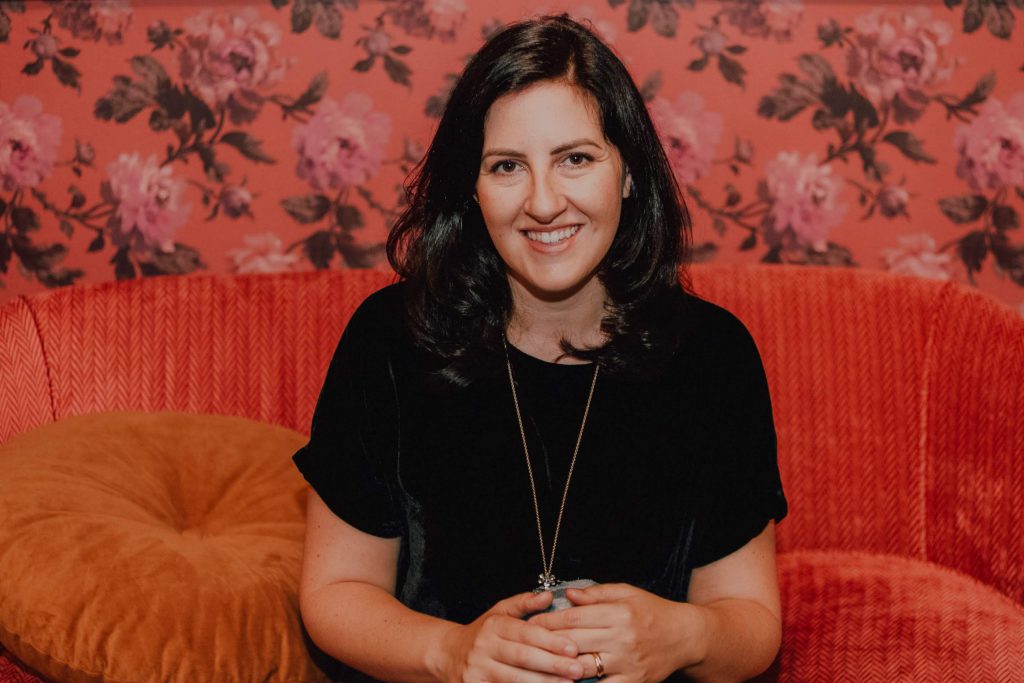
16. STEPHANIE NADI OLSON
Founder & CEO, We Are Rosie
Atlanta, Georgia
Stephanie Nadi Olson is solving the diversity problem within the advertising industry and bettering the lives of freelancers. As the daughter of a Palestinian refugee, Olson has always been drawn to the unique challenges faced by marginalized or under-represented groups of people. After 13 years in the advertising industry, frustrated by the lack of diversity in the industry and tired of waiting for companies to make meaningful improvement, Olson took matters into her own hands in 2018 and founded We Are Rosie, a marketing firm based in Atlanta, Georgia, with a mission to support extraordinary people while providing a workplace that treats everyone with dignity and access to opportunity.
“Ultimately, the hope is that the system — with more equity and better access — will shift power dynamics so that different types of people have a voice,” Olson says of the role of business in making the world a better place. “This will create a trickle-down effect that will lead to a more humanistic approach to business, wealth creation, and opportunity.”
In its first calendar year of business, We Are Rosie is on track to earn more than $5 million, boasts a client list that includes 20 Fortune 500 firms and nationally recognized brands, has more than 2,700 freelancers across 41 US states, and offers a benefits package to its workers that includes health insurance and retirement accounts.
What’s one key piece of advice you’d give to other women looking to excel as a leader in conscious business?
“There is no difference between you and the people you admire. I spent my entire career thinking people in the C-Suite were superheroes with magical powers I didn’t possess. But the only difference between you and them is they believe they belong there. As Henry Ford famously said, “Whether you think you can, or you think you can’t — you’re right.”
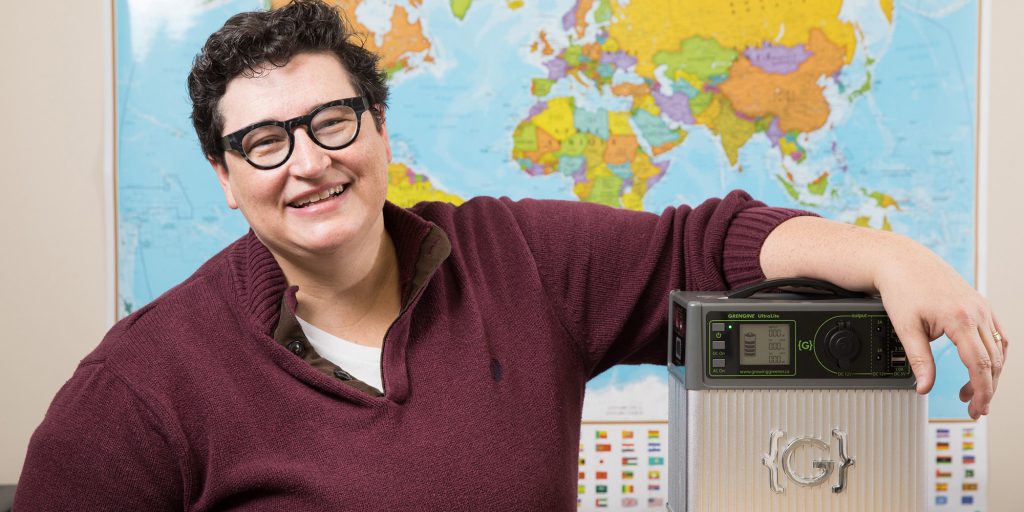
17. CONNIE STACEY
Founder & CEO, Growing Greener Innovations Inc.
Edmonton, Canada
Connie Stacey is building a better energy future. After becoming fully aware of the scale at which gas generators and biomass-burning cause massive harm to people and the planet, she set out to provide the world with clean, portable energy. In 2014 Stacey founded Growing Greener Innovations, a social enterprise whose mission is “to empower people and eliminate energy poverty, for good.”
With Stacey at the helm, the company created The Grengine Power System — a plug-and-play, scalable, and technician-free system that can be used by anyone, anywhere by multiple inputs, from solar power and hydro power to kinetic power. For this unique, game-changing technology, Growing Greener Innovations won a 2018 US Department of Defense Innovation Award and the “Building Smarter Cities” pitch competition at Inventure$ 2019. The company’s three pilot projects, scheduled for 2020, will see an approximate reduction of 10,213 tons in greenhouse gas emissions globally.
What’s one key piece of advice you’d give to other women looking to excel as a leader in conscious business?
“Remember: Nothing great has ever been accomplished without irrational exuberance!”
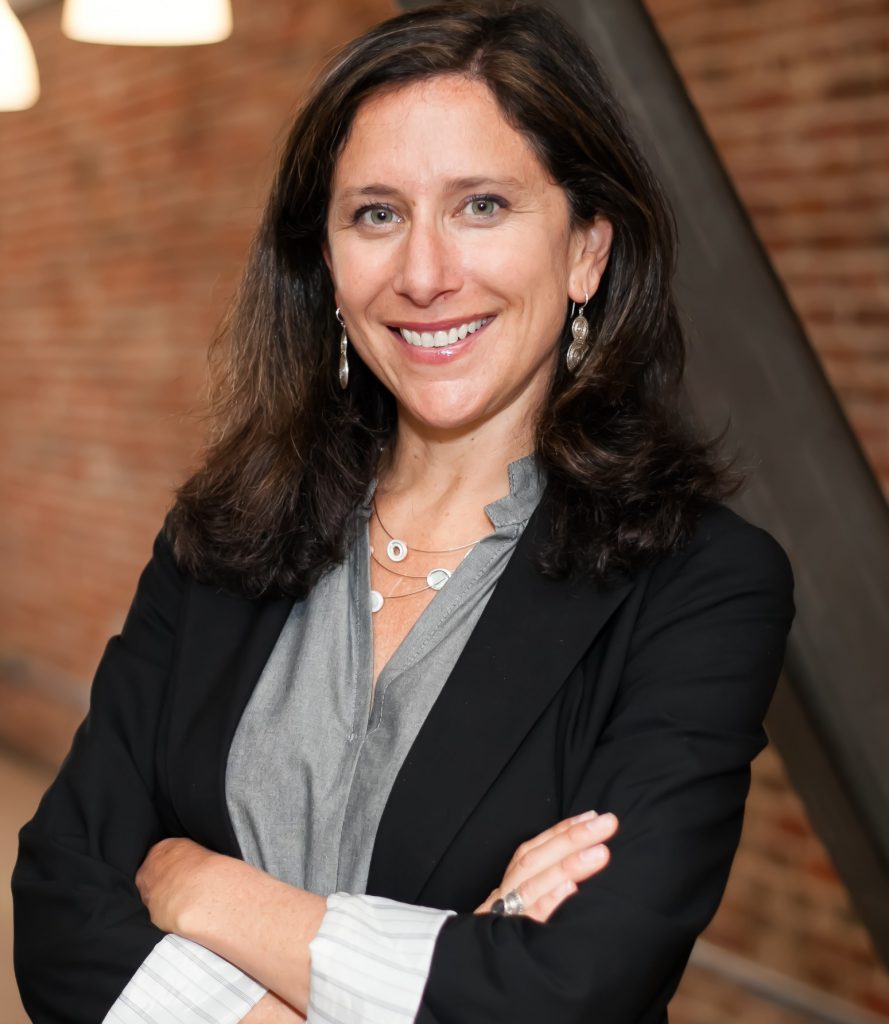
18. HOLLY RUXIN
Founder & CEO, Montcalm
San Francisco, California
Holly Ruxin is transforming the flow of money. After 25 years working on Wall Street, she decided to start her own firm — on her own terms. It all started in 2008, when her son became severely disabled. With no answers from mainstream medicine, Ruxin began exploring new ways of looking at things, from a more holistic, energetic perspective. “I learned that we are all part of something much bigger than appears on the surface” she says. “I knew I needed to bring these new perspectives to the finance industry, to create a new system based on authenticity, integrity, and truth. I knew this would be transformational for the future of humanity and the planet.” In 2012, Ruxin founded Montcalm, a suite of finance companies whose mission is “to use capital markets to spiral humanity upward and help create a natural regenerative financial system.”
Montcalm’s wealth management company Montcalm TCR manages nearly $200 million in assets and empowers more than 100 individual clients, half of whom are women. Montcalm Capital has almost $100 million of corporate debt deals in its pipeline to grow positive-impact companies. Fifty percent of Montcalm Capital’s eight client companies have women in C-suite leadership. Montcalm is committed to democratizing impact investing by lowering minimums and fees, and many individuals have already had the opportunity to participate in the success of a positive environmental impact company through Montcalm Capital. Their foundation, Montcalm Trevor, has made $100,000 in grants to 14 organizations since 2016, with a focus on programs advancing the values of inclusiveness and belonging.
What makes a good leader?
“A good leader is someone who empowers people to empower themselves. It used to be that those who had information and could dole it out were the leaders. Now, everybody has access to information, and there’s so much information out there that it can be overwhelming. Those who can process all that stimulation, then create clarity and demonstrate truth, are the real leaders.
“People can feel truth. They can feel it in their nervous system. A real leader helps us all resonate with our deepest truth and fullest integrity. She does it by example — by showing, not telling; not by trying to control. Just by aligning herself to truth, and not wavering even a hair, she energetically pulls others in that direction. The more that people experience and feel integrity and truth, the more they will be able do it themselves. This is how a powerful leader can really change the world.”
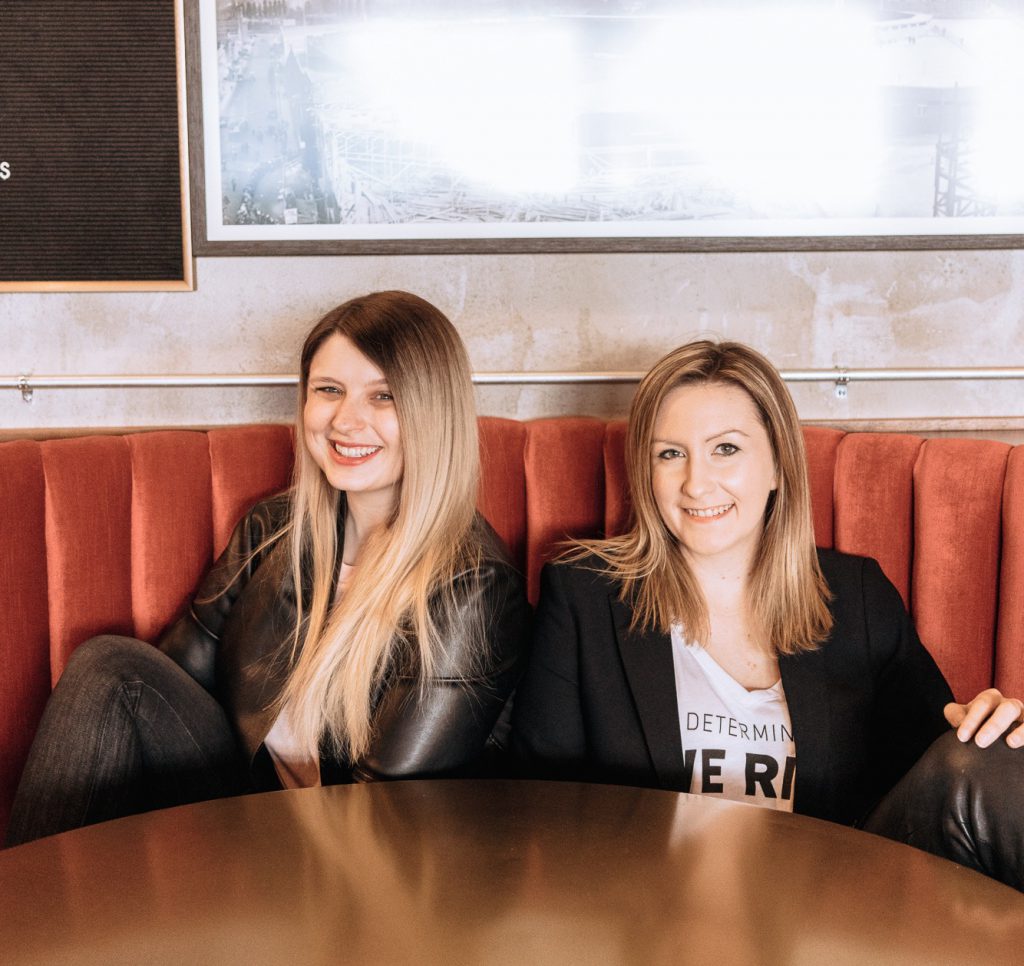
19. VANESSA BRUCE & 20. ANNA PALMER
Co-founder & COO (Bruce), Co-founder & CEO (Palmer), Dough
Boston, Massachusetts
Vanessa Bruce and Anna Palmer are all about wallet power. From their experiences as female founders and women in tech, Bruce and Palmer have become familiar with the capital gap — where women receive less than 3 percent of venture capital — and decided to do something about it. In 2018 they launched Dough, an online platform whose mission is “to empower you to shop from women-owned brands and products, daily.”
“If everyone in the US spent $20 a month at a woman-owned business,” the Dough creators say, “we’d drive nearly $5 billion toward female-led companies monthly.” While it could take years for investors to narrow the funding gap, Dough enables conscious consumers to impart change from the ground up and has connected the public with more than 200 women-owned businesses and their products. The company is also dedicated to transparent pay to fight the wage gap and committed to building an inclusive marketplace; over 50 percent of Dough partners, as well as the Dough team itself, are women of color.
What is the role of business in making the world a better place?
“Businesses have the power to be a leader of positive change. From closing the wage gap (looking at you Transparent Pay), to sourcing materials, to giving back, we have a responsibility as leaders to live and breathe our values and reflect them in the companies we build.”
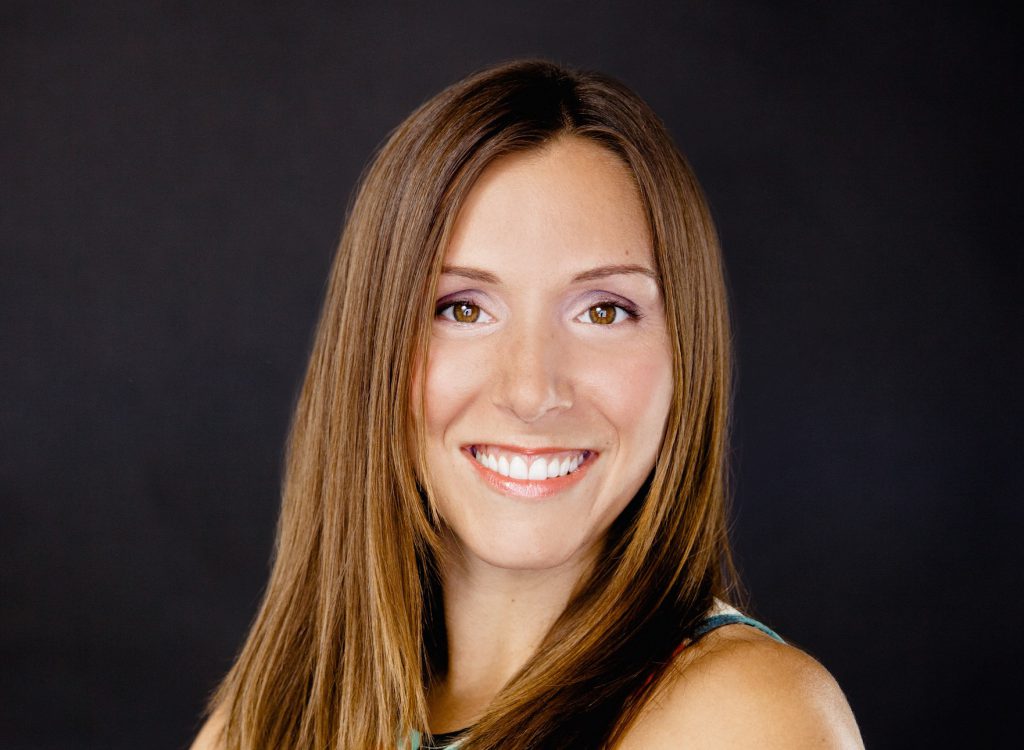
21. JENN GRAHAM
Founder & CEO, Civic Dinners
Atlanta, Georgia
Jenn Graham is ensuring that everyone has a seat at the table and a role in co-creating a better future. During her time as an organizer at TEDxAtlanta, Graham felt like something was missing. “We’d bring together more than 300 amazing people but only give a dozen people the opportunity to share their voice and their story on stage,” she says. “I became obsessed with exploring more intimate opportunities to dive deeper into the complex issues and give more people a chance to share their perspective.” In 2017, Civic Dinners was born with a mission to create a more inclusive and sustainable world where each person’s voice can be heard.
In two years, Civic Dinners has grown from a dinner-party project to the world’s first community-engagement platform designed to bring people together for meals while having conversations that matter. The company has grown to over 36 clients and partners, enabled over 1,500 dinners worldwide, engaged more than 13,000 people, and worked with organizations such as Facebook, Coca-Cola, The King Center, The Sierra Club, Teach for America, Planned Parenthood, and Atlanta Regional Commission. Civic Dinners recently launched the Inclusive Series aimed at helping organizations build more inclusive cultures, and in the next three years, the company aims to bring a million people to the table and inspire over 100,000 actions towards positive social change. In 2019, Graham was recognized by the Atlanta Business Chronicle as a Rising Star in its 2019 Small Business Person of the Year Awards.
What makes a good leader?
“To me, a truly conscious leader has what my friend LeeAnn Malorie talks about in her book, ‘Guts & Grace.’ One who is authentic and brings her whole self to her work, and leads with heart, while also standing for something. A conscious leader listens, to herself and her team, and isn’t afraid to ask, ‘Is there a better way?’ even when the better way isn’t the easy way or more profitable way. A conscious leader takes responsibility for not only her company but for creating a better world.”
HEAR: Jenn Graham on the World-Changing Women Podcast
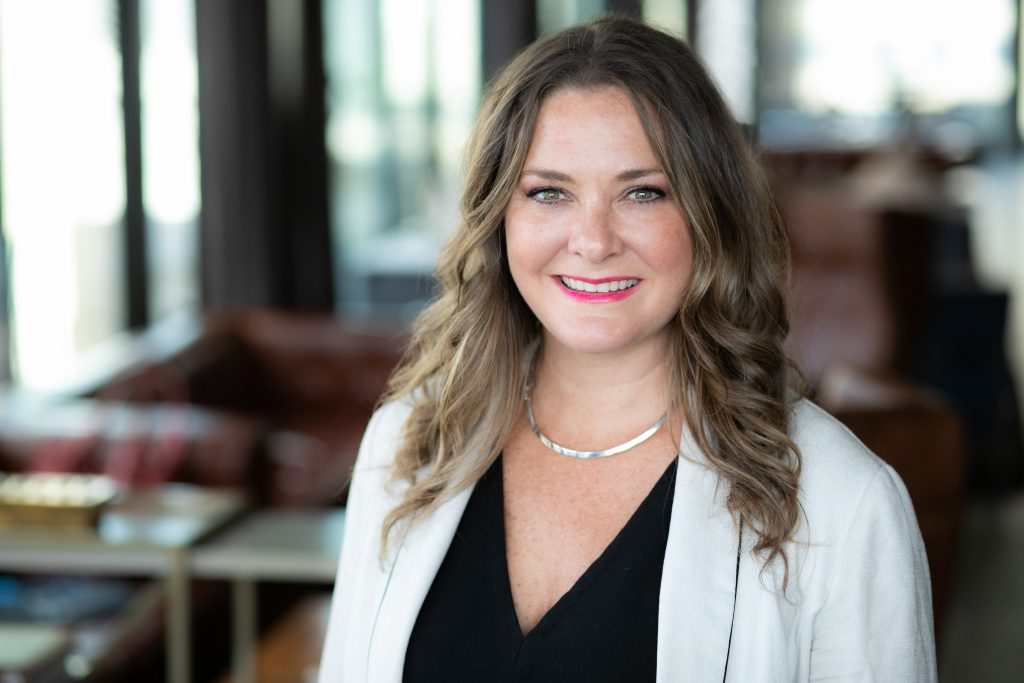
22. KRISTY WALLACE
CEO, Ellevate
New York, New York
In 1997, as a response to systemic barriers and discrimination that women face in the financial industry, Janet Hanson founded a company called 85 Broads. Rebranding in 2014, Ellevate opened its doors to women from all industries as a place to network, grow, and promote business success. Shortly thereafter, Kristy Wallace signed on as CEO and led Ellevate to grow into a community of 150,000 women while staying true to its mission: “to foster and promote equality in the workplace through providing a community for professional women committed to helping each other succeed.”
Ellevate boasts close to 100 corporate partners; operates more than three dozen chapters worldwide; has seen more than 6,000 women complete its peer professional development program, Squads; and has hosted more than 1,000 events worldwide annually. The company’s signature action summit, Mobilize Women, gathers more than 650 attendees and 35 speakers every year to tackle inequality. Under Wallace’s direction, Ellevate became a certified B Corporation in 2016, was awarded a spot on the Inc. 5000: The Most Successful Companies in America in 2019, and was recognized as a Best for the World Honoree in categories of Workers and Governance for its prioritization of employee-focused efforts, inclusive hiring practices, and commitment to transparency and accountability to use the force of business for good.
In addition to her success at Ellevate, Wallace is an angel investor for women and non-binary social entrepreneurs, a member of the UN Women Global Innovation Coalition, and an advisor for multiple nonprofit organizations including 92Y Women in Power Fellowship and Girl Scouts of Greater NYC.
What’s giving you hope?
“My kids give me hope. They believe so fully in their ability to create change in the world. My son, Benjamin, attended the Ellevate Mobilize Women Summit where he learned more about climate change through a panel on Tackling The World’s Biggest Problems. He then not only enacted better environmental practices in our home but marched in the climate strike and ran for student government on a platform of environmental change within the school. Kids are our future, and they’re already on their journey towards conscious leadership.”
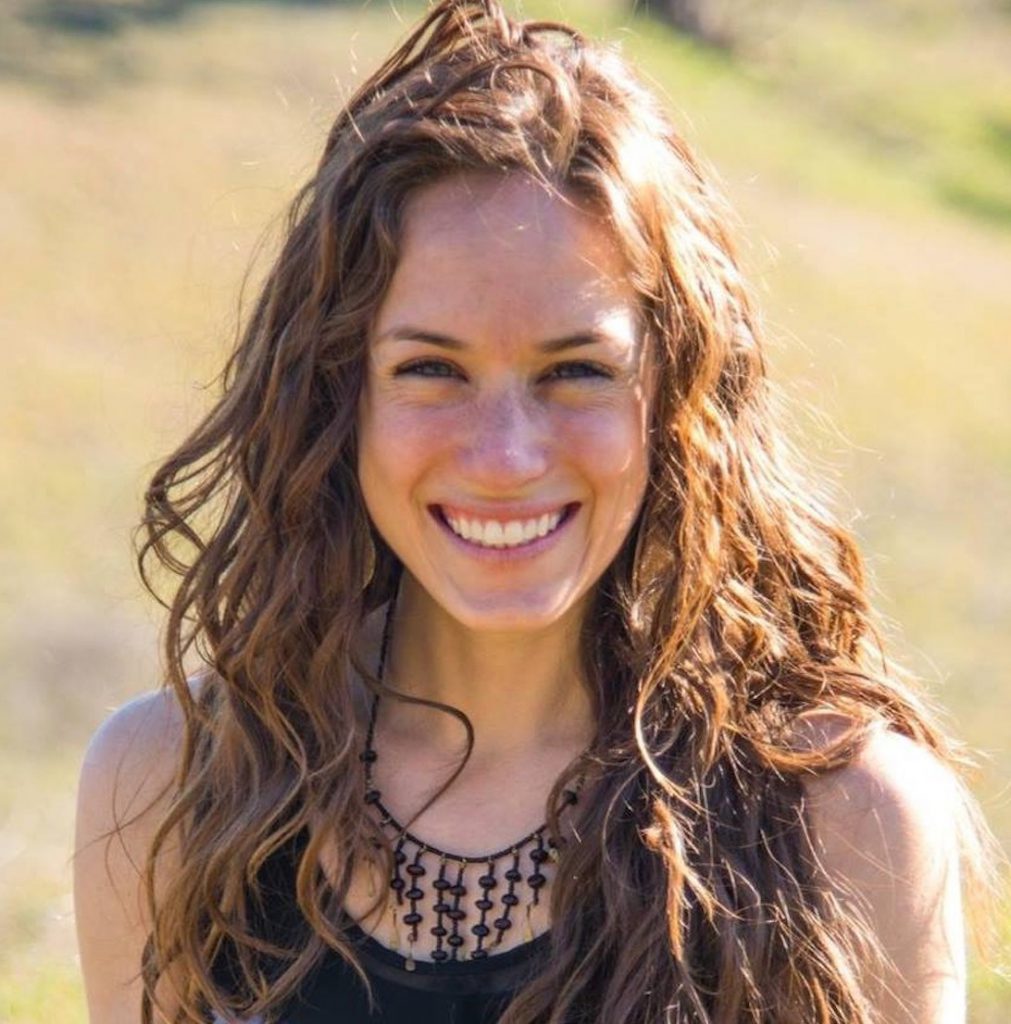
23. DR. ILANA NANKIN
Founder & CEO, Breathe For Change
San Francisco, California
Dr. Ilana Nankin is on a mission to change the world one teacher at a time. While she loved teaching Pre-K in San Francisco, she was constantly stressed, overwhelmed, and overworked — until she found yoga. “Yoga completely transformed my life,” Nankin says, “and inspired me to integrate some of the wellness practices I was learning into my classroom with my kids.” After doing so, she saw transformations in her students both social-emotionally and academically and knew there was something there that she had to further explore.
Nankin set out to pursue her Ph.D. in Curriculum and Instruction and become a teacher educator at the University of Wisconsin in Madison, where she started a movement to enhance the health and wellbeing of teachers, students, and entire communities. In 2015, Nankin launched Breathe For Change, a company that offers the world’s only 200-hour Wellness and Yoga Teacher Training specifically for educators. In less than five years, Breathe For Change has expanded its impact to 11 major US cities and counting, provided over 750,000 hours of high-quality training, and graduated more than 3,000 educators as Breathe For Change Wellness Champions and Certified Yoga Teachers through Yoga Alliance. These graduates are now collectively enhancing the health and wellbeing of more than 500,000 students throughout the US — and are continuing to use wellness and social-emotional learning as vehicles for social change in their communities.
What is the role of business in making the world a better place?
“It is critical that we, as business leaders, use the platforms we’ve built as vehicles to foster social change and human connection. It is the responsibility of all businesses to contribute to the wellbeing of humanity — and I hope that more organizations continue to work together to create the change we want to see in the world.”
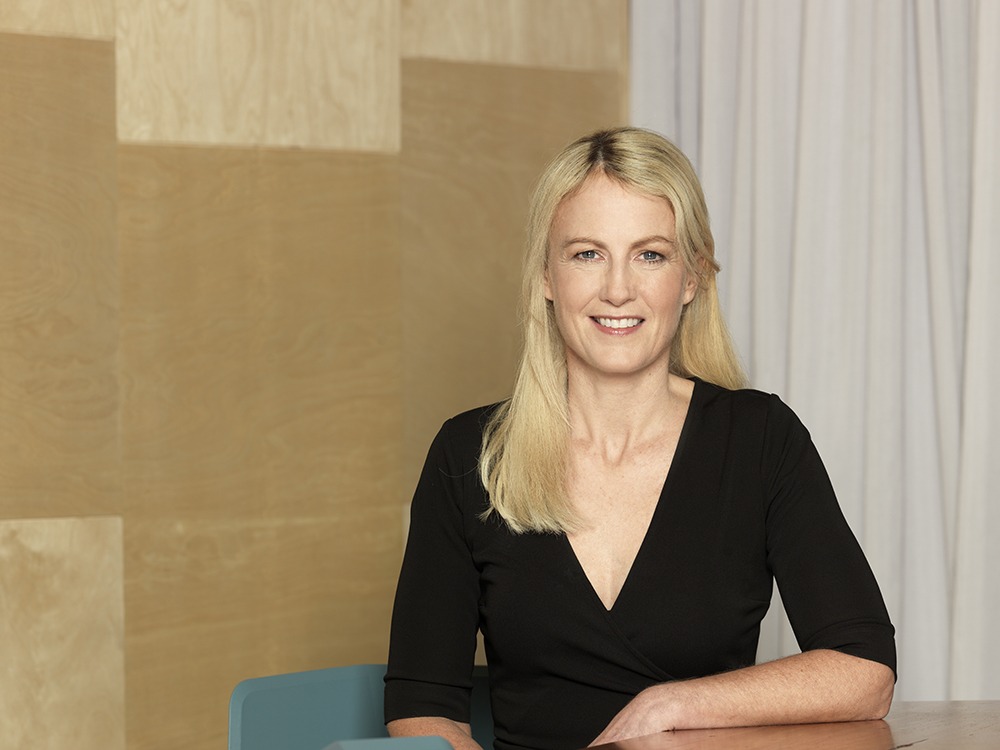
24. MONICA MELDRUM
Founder & CEO, Whole Kids
Melbourne, Australia
In 2000, after a trip to Indonesia to deliver an aid program to children living in poverty, Monica Meldrum realized she wanted to use her skills to make a difference to children’s health. She created Whole Kids, an organic food company, in 2005 with the mission to help parents across Australia “create happier, healthier lives for their children.” Whole Kids is a founding member of B Corporation Australia and the first food company in Australia to become certified as a B Corporation.
To date, Whole Kids has provided over 50 million healthier choices to families. Its products are available in all major retailers in Australia and on all outbound international and domestic airlines, offering a cleaner, healthier, and more socially responsible alternative for children, the proceeds of which are funding programs to improve social equity for children globally. In 2019, the company also reached its funding goal of providing 500,000 healthy breakfasts to enable girls to stay in school in Cambodia, granting them an education as part of Plan International’s World Food Program. The support of this program has since been adopted nationally by the Cambodian government for its continued success and is seen as a benchmark in assisting communities to become self-sustaining. In 2018, Whole Kids was recognized as one of the top 20 Businesses of Tomorrow from a list of 200 outstanding Australian businesses selected by Westpac, one of Australia’s largest banking corporations.
What’s one key piece of advice you’d give to other women looking to excel as a leader in conscious business?
“Never be afraid to take your seat at table and to stand up for what you believe in. In doing so you are paving the way for future generations of women and showing that through ideas and action that inspire others you can create real and lasting change in the world.”
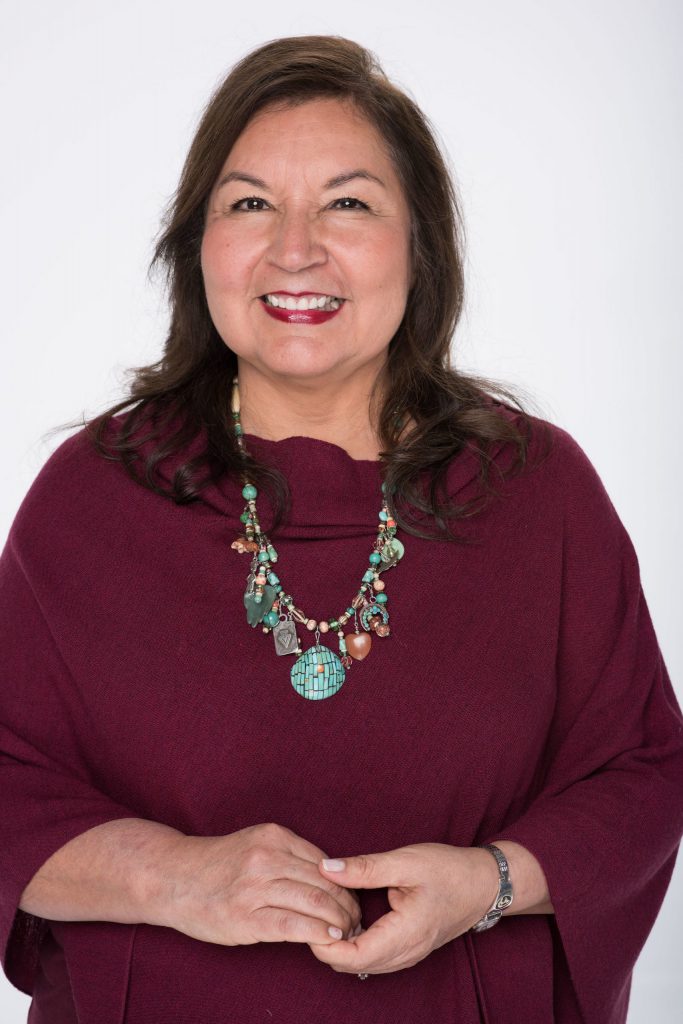
25. DR. ANITA SANCHEZ
Co-founder & CEO, Sanchez, Tennis & Associates LLC
Boulder, Colorado
Dr. Anita Sanchez, Aztec and Mexican American, combines Indigenous wisdom with exceptional whole-human systems expertise. Since 1976, her comprehensive organizational development consulting firm, Sanchez, Tennis & Associates, has been celebrated for its principled large-scale organizational change initiatives. As CEO, international consultant, trainer, speaker, and coach, Sanchez guides leaders in transformational advancement, interlacing the insights of Indigenous elders with best practices in human systems design and modern science. Her company particularly focuses on comprehensive diversity-and-inclusion strategies; moving beyond unconscious bias; women’s leadership development; and applied neurophysiology/resilience.
Sanchez has inspired and supported tens of thousands of Fortune 500 business leaders and their teams to leverage their spiritual, mental, and emotional genius for business, professional, and personal success, connecting their purpose and their gifts in service to others, themselves and the earth. Just one example: from 2005 to 2007, on the heels of a world-wide series of cultural transformation meetings co-designed and led by Sanchez, the 19,000-employee Inkjet Print Group of Hewlett-Packard experienced a leap in revenue from $25 billion to $29 billion in a flat market. “And,” Anita says, “the human impact was even more impressive than the financial returns.”
In addition, Sanchez is the author of several bestsellers, the most recent being “The Four Sacred Gifts: Indigenous Wisdom for Modern Times.” A board member of Bioneers and of the Pachamama Alliance, she is an ambassador for the permanent preservation of the Sacred Headwaters of the Amazon initiative. Sanchez is one of three Wisdom Keepers for the Tipping Point Festival — a 10-year worldwide collective-action strategy for systemic change in response to climate change and the human condition — and she leads annual journeys deep into the rainforest of the Ecuadorian Amazon to inspire consciousness shifts in business leaders, their team members, and their families.
What’s one key piece of advice you’d give to other women looking to excel as a leader in conscious business?
“2019 has been a year of weaving my corporate training in diversity inclusion, undoing unconscious bias, and spiritual pilgrimage with Indigenous people from various parts of the world, from Hawaii to New Mexico to the Sacred Headwaters of the Amazon to Scotland to Kyrgyzstan. Across the many ceremonies, one recurring theme keeps appearing: it is time for women to not doubt, to raise their voices, to lead from the heart, and be in action to reconnect to each other and to the earth. The power of our unity is a gift that we are to be using in our daily practices in our personal and work life.”
SEE: Dr. Anita Sanchez speak at the 2020 World-Changing Women’s Summit
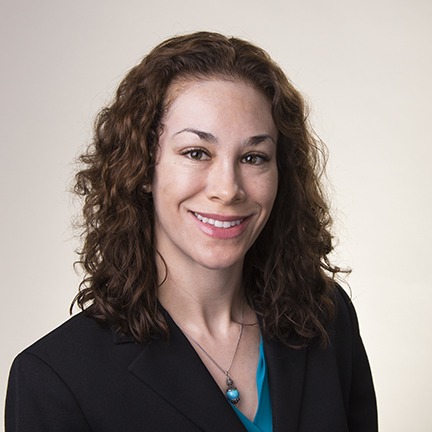
26. COURTNEY WILLIAMS
Co-founder & CEO, Emagine Solutions Technology
Tucson, Arizona
What’s giving you hope?
“Every year nearly 300,000 women die from preventable causes related to pregnancy and childbirth, and ultrasound has the potential to save a large portion of those lives. It gives me hope that mobile devices are multiplying faster than people, and there are more cell phones than toilets in the world, which means that companies like Emagine that are focused on delivering better healthcare via mobile technology have the power to truly impact patient health outcomes and change the world for the better.”
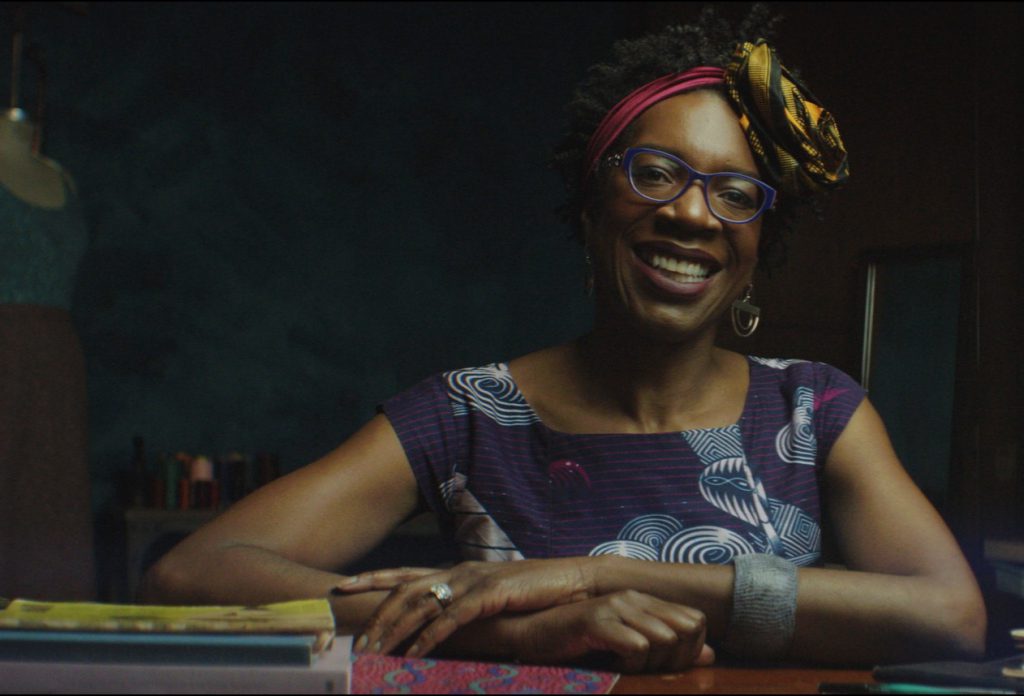
27. NGOZI OKARO
Executive Director, Custom Collaborative
New York, New York
Ngozi Okaro is an advocate for environmental stewardship and socioeconomic justice. After attending Morgan State University, Fashion Institute of Technology, and Georgetown Law, she led education, social justice, and community-based organizations to identify and meet their missions, including the National Urban Leagues and its affiliates, INSEAD, and Yale. In 2015, Okaro founded Custom Collaborative, a New York City-based entrepreneurship and workforce development program that trains and supports women from low-income and immigrant communities to launch fashion careers and businesses. She serves the nonprofit as Executive Director.
Ngozi initially founded Custom Collaborative as a way to serve two constituencies: fashion-industry workers who deserve fair compensation, and thoughtful consumers who want sustainable fashion that fits. She innately understands the challenges facing women who love nice clothes but whose bodies do not conform to the ready-to-wear template — the majority of US clothing buyers. Custom Collaborative has now evolved to serve a third constituency: US businesses and designers who want to design and produce fashion locally, ultimately providing more work opportunities for the women in the nonprofit’s programs.
Okaro is licensed to practice law in Louisiana and New York. Among other distinctions, she is certified by New York University’s Center for Philanthropy and Fundraising, was a 2014 Environmental Leadership Program Fellow, and is a graduate of the Coro Leadership New York program. In 2019 Ngozi was named “Changemaker of the Year” by New York City Fair Trade Coalition and received “Spirit of Entrepreneurship Award” from New York Women’s Foundation.
What makes a good leader?
“My most important job is to develop the people who work with me. That includes providing honest feedback, giving them the opportunity to try new ideas, helping them recover and correct course if their new idea fails, finding external training and mentors for them, or asking them to develop agendas for their meetings with me. I do my best to ensure that they are ready for the next day and for the next job.”
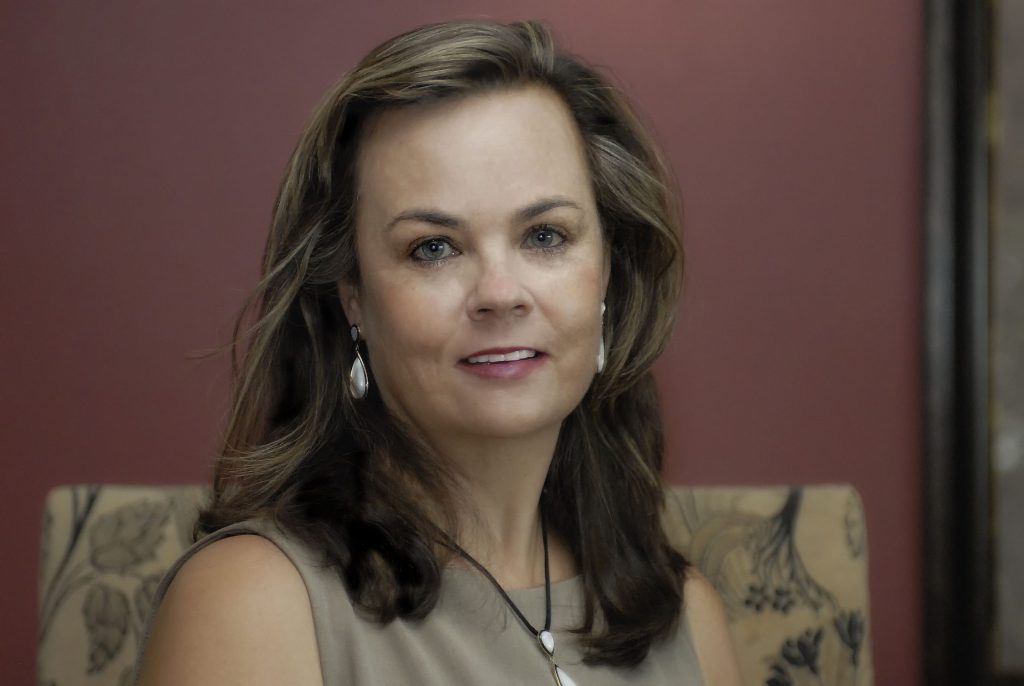
28. MICHELLE THIMESCH
Co-founder & CEO, Crowdfund Mainstreet
Oakland, California
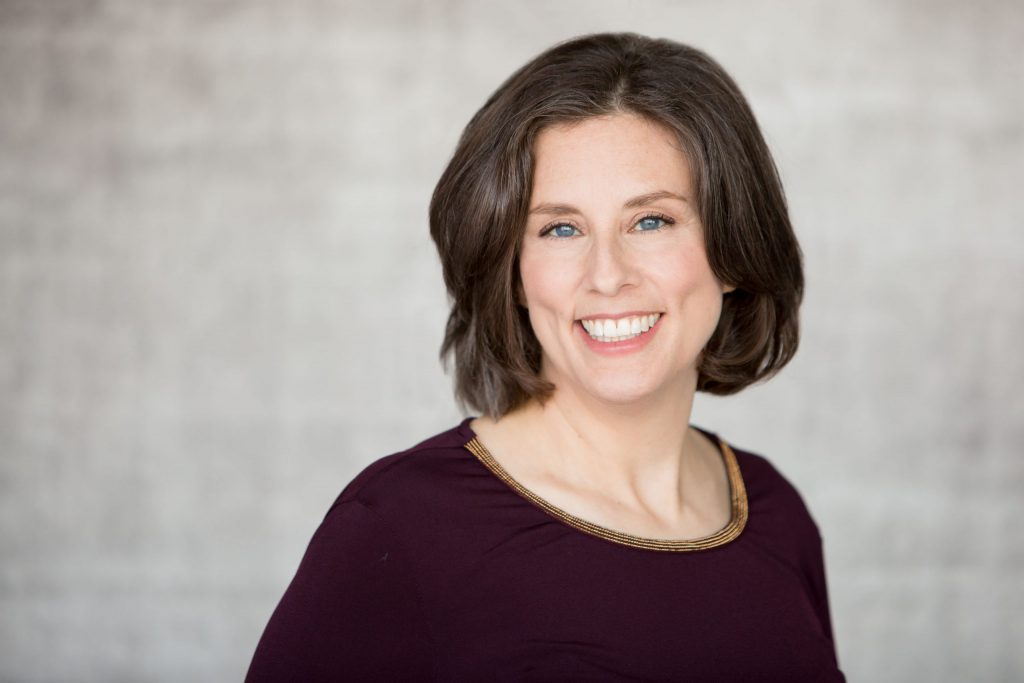
29. JENNY KASSAN
Co-founder & Shareholder, Crowdfund Mainstreet
Oakland, California
After the passage of the 2012 JOBS Act (Title III) and subsequent implementation of the regulations in 2016 — which made it much easier for anyone to invest in small businesses and startups — Michelle Thimesch knew the Act was capable of altering the trajectory of income and political inequality. “Suddenly, the idea of saving the promise of upward mobility seemed not only feasible but inevitable,” she says. Thimesch started looking for a values-aligned attorney to help her create Crowdfund Mainstreet, an investment crowdfunding platform, which led her to Jenny Kassan. “I realized that without Crowdfund Mainstreet I would have no place to send my clients who wanted to raise money under Title III,” Kassan says. “I became a huge cheerleader for Michelle and helped her raise seed capital from investors.”
In 2018, Thimesch and Kassan co-founded Crowdfund Mainstreet, whose mission is “to build a robust financial marketplace that is open to all and serves the function of deploying capital for productive use.” The company is designed exclusively for socially conscious enterprise and self-directed investors who are keen to help create an equitable and sustainable financial marketplace alternative to venture capital.
Crowdfund Mainstreet has experienced a 67 percent success rate with its campaigns to date, whereas investment crowdfunding is 66 percent successful as an industry. Women who raise money using investment crowdfunding are successful in reaching their minimum target amount 77 percent of the time; people of color who raise money using investment crowdfunding are successful 75 percent of the time. “This means that these groups are at least 74 percent more likely to get capitalized using this tool than trying to go after venture funding,” Thimesch says.
What’s one key piece of advice you’d give to other women looking to excel as a leader in conscious business?
Thimesch: “Find one example every day, however small, of you following your gut. Practice makes progress.”
Kassan: “Stay true to yourself no matter what. Don’t compromise your values to get your business funded. Commit to finding those investors who believe in you and support your vision.”
HEAR: Jenny Kassan on the World-Changing Women Podcast
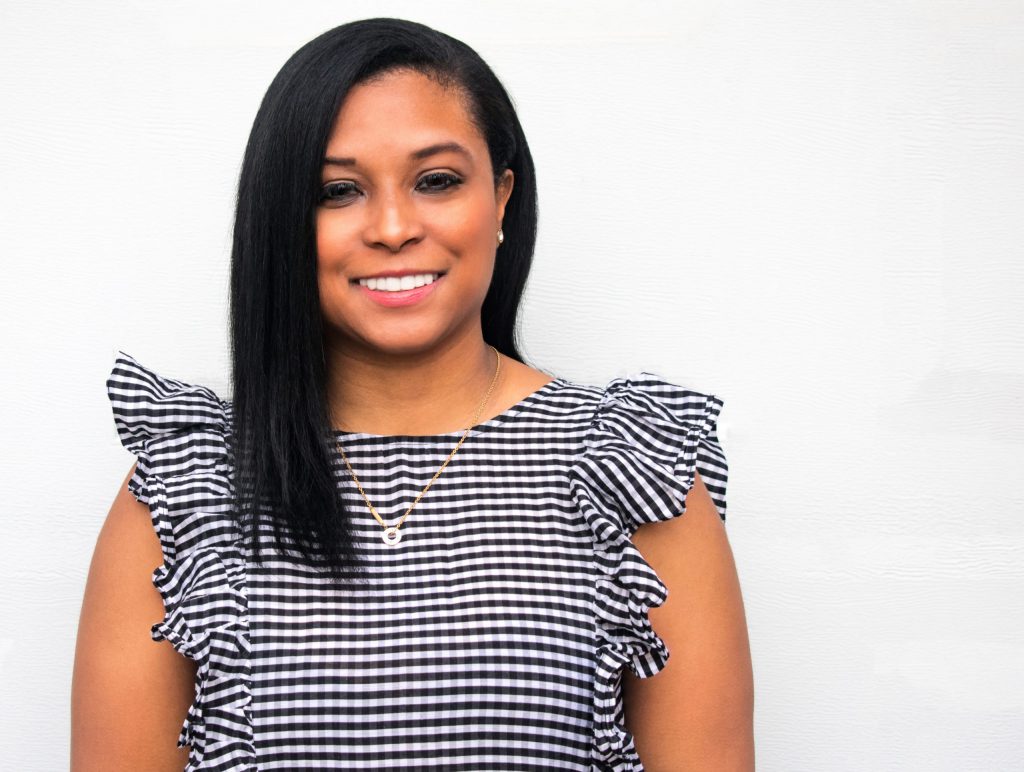
30. MINDA HARTS
Founder & CEO, The Memo, LLC
New York, New York
Minda Harts spent 15 years in the workforce and was often the only person of color or woman of color in the room. “I wanted to shift the conversation and add diversity and equity to women in the workplace,” she says, so in 2015 she founded The Memo, a career development company whose mission is “to help women of color prepare for their seat at the table.”
The Memo provides tools, events, access, and a robust community for women of color and for the companies where they work. Since its inception, the company has provided professional development training to over 10,000 women of color to help them advance in the workplace.
In addition to leading The Memo as CEO, Harts is the best-selling author of “The Memo: What Women of Color Need To Know To Secure A Seat At The Table” — one of the first business books about women of color in the workplace to be printed by a major publisher. She also established an endowed scholarship for women of color at Western Illinois University.
What’s one key piece of advice you’d give to other women looking to excel as a leader in conscious business?
“Leaders shouldn’t make decisions that only affect their bottom line, but the bottom line of future generations.”
SEE: Minda Harts speak at the 2020 World-Changing Women’s Summit
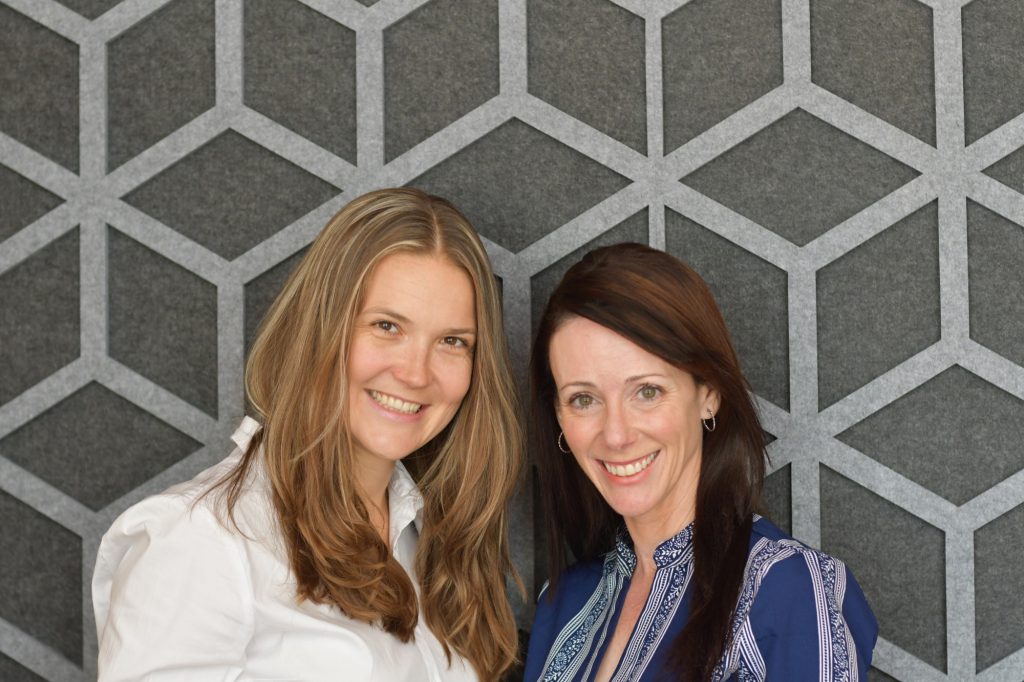
31. YULIYA TARASAVA & 32. CATHERINE BERMAN
Co-founder & COO (Tarasava), Co-founder & CEO (Berman), CNote
Oakland, California
In their decades of experience working in finance, venture capital, and entrepreneurship, Yuliya Tarasava and Catherine Berman witnessed the widening of the wealth gap and decided to leave traditional finance in 2016 to found CNote, a fintech company that makes it easy for individuals and institutions to invest in economic inclusion across the US. An immigrant who arrived in the US at the age of 20 with a backpack and only $200 in her pocket, and who spoke no English, Tarasava experienced firsthand the uneven distribution of opportunities when pursuing “The American Dream.” Berman, who was brought up in the only Latina household in her neighborhood of first-generation Argentine immigrants, has many memories of her family fighting their way to economic independence.
CNote was the first company to unlock investing in underserved communities using community development financial institutions (CDFIs) at scale for the mass market, directing every dollar invested toward funding women- and minority-led small businesses, affordable housing, and other economic development and equitable-communities projects. The company uses cash and fixed income for transformative change by co-creating solutions with CDFIs and communities. For example, while the majority of funding goes to the same handful of large CDFIs, CNote focuses on smaller CDFIs, with a focus on CDFIs serving and led by people of color.
Since its September 2017 debut with a product for retail investors, CNote has created or maintained more than 2,500 jobs, and has invested 35 percent of its dollars into women-led businesses (about 10 times the national average), 48 percent into minority-led businesses, and the majority of funds into low- or middle-income communities.
What is the role of business in making the world a better place?
Berman: “I often say that ‘the HOW matters.’ Business is not just about creating a successful product or brand. It’s about how we treat each other as individuals when no one is looking, how we empower our local communities by our work, how we co-create solutions with customer and community voices to counter traditional power dynamics, and how we create a more sustainable, equitable future by what we build. These are choices business leaders make every day — and choosing to ignore the byproducts and externalities of one’s business is a choice in the wrong direction.”
Tarasava: “I don’t understand the term ‘social enterprise.’ To me, each business must solve a problem to help people and make the world a better place. As I see it, you don’t start a business to have CEO or founder as your title; you start it because you are making someone healthier, happier, more secure with your product or service.”
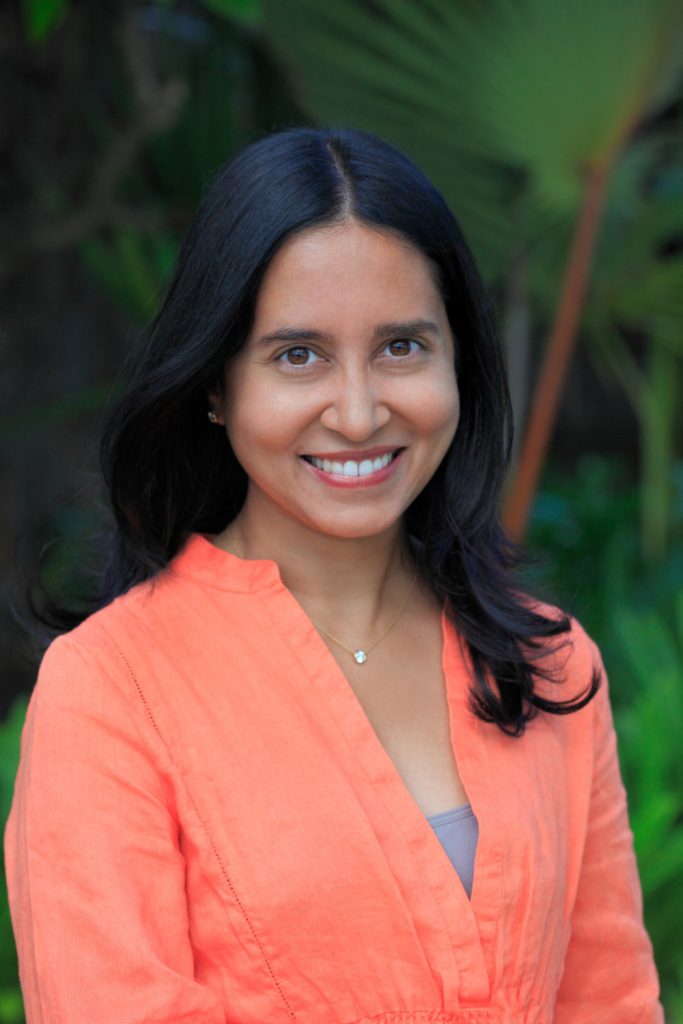
33. ANISA KAMADOLI COSTA
Chief Sustainability Officer, Tiffany & Co.
Chairman & President, The Tiffany & Co. Foundation
New York, New York
Anisa Kamadoli Costa is helping to drive a 180-year legacy of sustainability and philanthropy. After earning a master’s from the School of International and Public Affairs at Columbia University and working in private philanthropy as well as finance, Costa says she was drawn to Tiffany & Co. “because it has such a longstanding history in sustainability and has always focused on the value of what happens at the origin of its supply chain.” As Chief Sustainability Officer of the luxury jewelry retailer, as well as the Chairman and President of The Tiffany & Co. Foundation, Costa has built many programs from the ground up while underscoring the brand’s leadership on human rights, the environment, and the conservation of critical species and ecosystems.
Under Anisa’s leadership, Tiffany & Co. made a commitment to net-zero greenhouse gas emissions and developed a three-pronged climate strategy to reduce, avoid, and offset the company’s carbon emissions. The company also publicly advocates for responsible climate policy, such as in 2017, when the company took out an ad in The New York Times to tell President Trump “We’re still in” and to urge the US to remain in the Paris Climate Agreement. Costa recently appeared before Congress to testify against the development of the Pebble Mine in Bristol Bay, Alaska, which threatens critical salmon habitats and the communities that depend on them. She has championed the company’s aim to donate at least 1 percent of pre-tax earnings to charitable purposes annually, and since its inception, the Foundation (whose grantmaking is a key pillar of Tiffany’s sustainability efforts) has awarded over $80 million, including in its two current program areas, Coral and Marine Conservation and Responsible Mining. As a result of these efforts, Foundation grantees have helped protect approximately 8 million square kilometers of ocean, an area roughly equivalent to the size of the United States. Earlier this year, Tiffany & Co. began sharing the origins of its diamonds — a luxury industry first — and in 2020, the company will advance its transparency one step further by sharing the full craftsmanship journey for its diamonds, allowing customers to trace where each individually registered Tiffany & Co. diamond was cut, polished and set. To date, Tiffany & Co. is the only jewelry company to receive the highest category ranking from Human Rights Watch for its responsible sourcing practices.
What’s one key piece of advice you’d give to other women looking to excel as a leader in conscious business?
“To advocate for sustainability within your business or organization, you don’t need ‘sustainability’ in your title to make a large impact. Everyone can be a champion of sustainability in business. We must all work together across functions and departments to deliver the most responsible business practices to ensure a healthy world for our employees, our customers, and our communities. By believing in and understanding the value of sustainability and the role it can play in supporting a company’s brand and mission, an individual can really make a difference.”
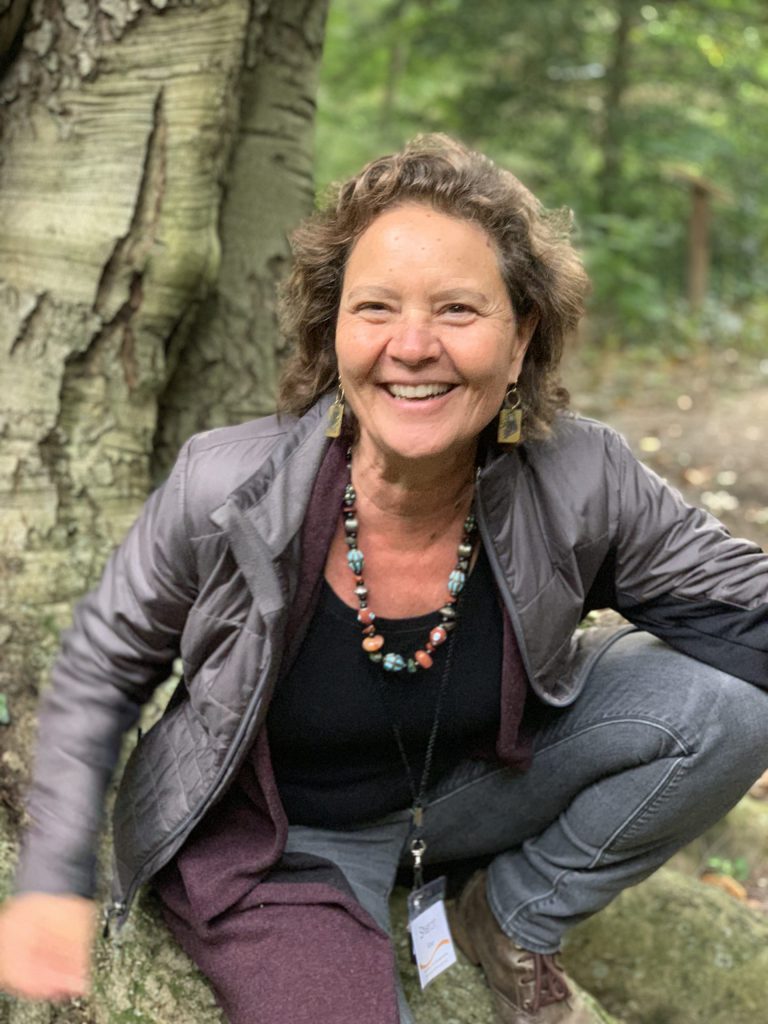
34. SHARON ROWE
Founder & CEO, Eco-Bags Products
Ossining, New York
Sharon Rowe is cleaning up the planet one bag at a time. In 1989, she’d just had her first child and was working from home when we she resolved to make a living on her own terms. “I had a fax machine and an Apple computer — pre-Internet and cell phones,” she says. “I was called a ‘lone eagle.’ The company I worked for was pressuring me to return to the office and it wasn’t that appealing.” So instead, Rowe launched her own business, Eco-Bag Products, to address a problem she cared deeply about: creating a durable, reusable alternative to single-use plastic bags while generating awareness about the wastefulness of “use-n-toss plastic.”
Rowe bootstrapped her brand, ECOBAGS®, starting with just $2,000. Time Magazine presented her to the mainstream as an “eco-pioneer” and ECOBAGS was featured on Oprah’s first Earth Day episode. Three decades after its launch, under Rowe’s leadership as CEO, Eco-Bag Products has sold millions of products, is a $2.2 million business, and a “Best For The World” B Corp-certified company. Rowe is also the author of “The Magic of Tiny Business: You Don’t Have to Go Big to Make a Great Living.”
What’s one key piece of advice you’d give to other women looking to excel as a leader in conscious business?
“Women in conscious business need to be seen and heard more! Author a book, blog and find niche as well as mainstream outlets for your voice. We need to bring our voices to the media because they tend to replay the same brands and stories.”
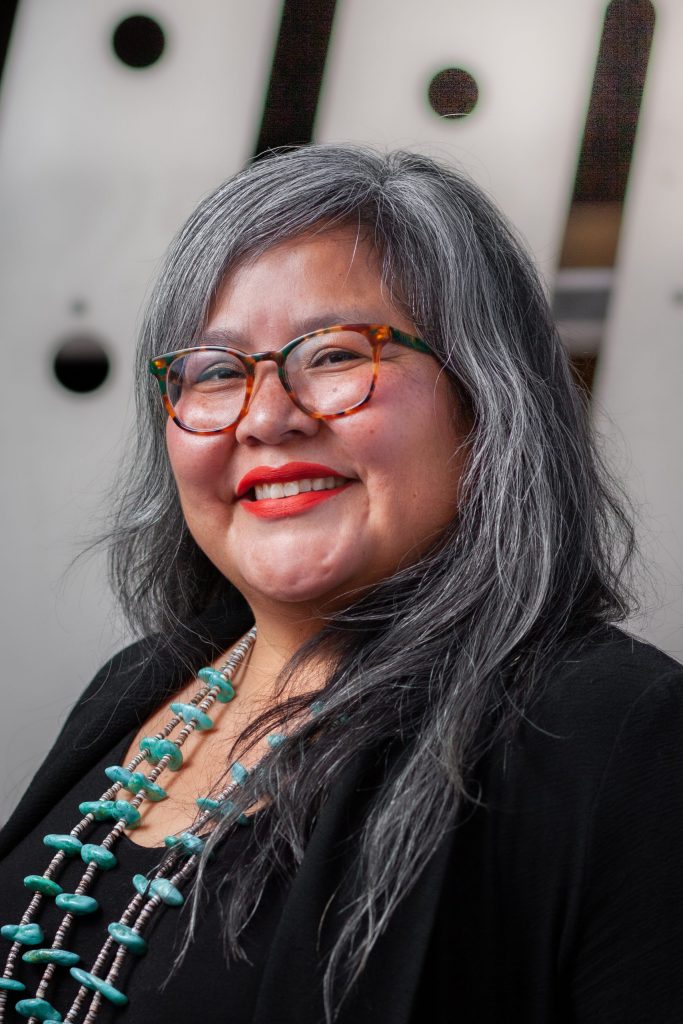
35. VANESSA ROANHORSE
Founder & CEO, Roanhorse Consulting, LLC
Co-founder, Native Women Lead
Albuquerque, New Mexico
Struggling to find a fulfilling job after moving from Chicago to Albuquerque, Vanessa Roanhorse decided to create a company to do the work she cared most about. On her journey to start a company as an Indigenous woman in a state that has 573 federally recognized tribes and one of the largest urban Native American populations, Roanhorse was hindered by the lack of access and resources that were culturally relevant. “For me this has been a defining moment,” she says, “and has pushed me to create better ways to connect and share the incredible genius being created in places way overlooked.”
In 2016 she founded Roanhorse Consulting, LLC, an Indigenous women-led firm that works with unheralded communities, businesses, organizations, and individuals to achieve their self-determination through forging communities of practice, strengthening Indigenous evaluation methods, creating equity through entrepreneurship, and encouraging economic empowerment from within. Roanhorse Consulting has supported movement of over $200,000 in capital in small micro loans to borrowers who would, under traditional circumstances, be unable to access any capital, and has supported more than 350 small businesses in the City of Albuquerque through the company’s City Navigator program.
In addition to leading Roanhorse Consulting as CEO, Roanhorse, along with seven other Native women, co-founded Native Women Lead, a nonprofit whose mission is “to revolutionize systems and inspire innovation by investing in Native women in business.” Native Women Lead’s community boasts more than 500 Indigenous women across North America, growing 50 percent each year, and has goals of reaching more than 1,000 Indigenous women across North and South America to help them find resources and support for their businesses.
What’s one key piece of advice you’d give to other women looking to excel as a leader in conscious business?
“Let your matrilineal ways be your guides. Women have and will always be leaders, but we must embrace our ways of leading that come from how we are connected to the world around us and are a part of our everyday lives.”
SEE: Vanessa Roanhorse speak at the 2020 World-Changing Women’s Summit
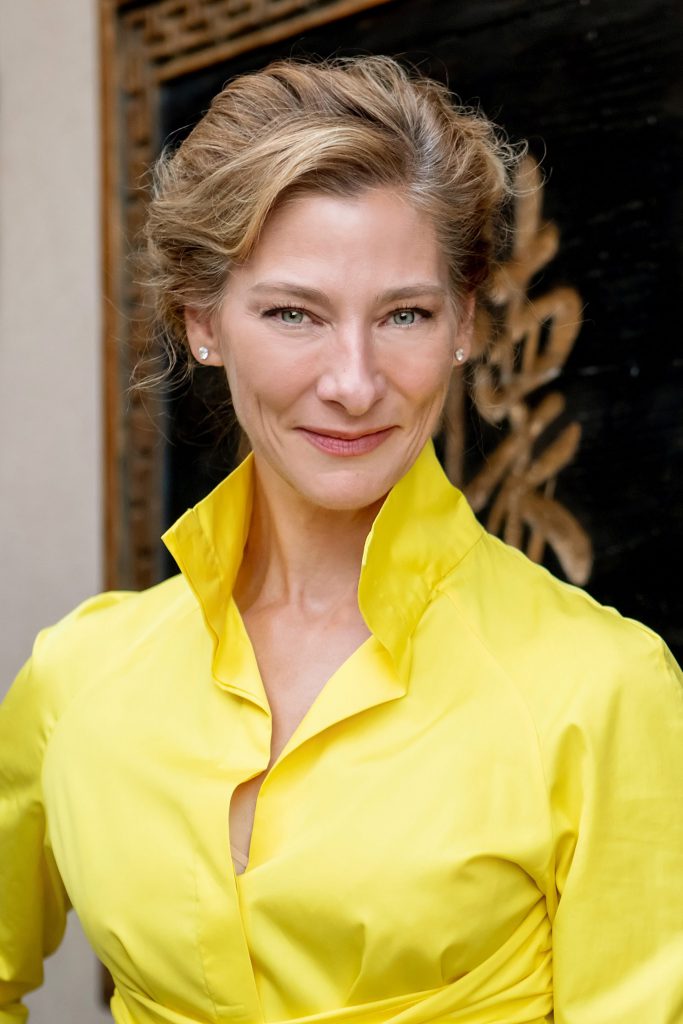
36. NATALIE REKSTAD
Founder & CEO, Black Fox Philanthropy
Boulder, Colorado
Since an early age, Natalie Rekstad has been passionate about helping worthy organizations bring about deep and lasting social change. In 2013 she founded Black Fox Philanthropy, a boutique fundraising-strategy firm with a focus on serving international NGOs.
Black Fox Philanthropy invests significant resources to advance the mission of accelerating economic opportunities for women and girls, and funds a Girls, Inc. scholarship entitled “Black Fox Scholars,” rewarding high-school girls for excellence in leadership and philanthropy. Each year the company underwrites three “Black Fox Fellows,” all people of color, at Opportunity Collaboration in Mexico. In 2019, Black Fox Philanthropy was recognized by B Lab as a “Best for the World” honoree in the category of Changemaker.
In addition to her role as CEO, Rekstad is a member of Women Moving Millions, an MCE Social Capital Guarantor, a delegate of the UN’s Commission on the Status of Women, and a member of the Founders Pledge with 90 percent of her estate going to solve gender-equity issues. In 2018, Rekstad launched the UN Sustainable Development Goals series at the Skoll World Forum. Along with her daughter Sophie Lynn, Rekstad is the author of an award-winning children’s book about random acts of kindness, “The Secret Adventures of Anonymouse,” which is geared toward three- to six-year-olds and has reached over 100 million children through a social-emotional learning curriculum designed by Think Equal based in the UK.
What’s giving you hope?
“I am full of hope! First, despite the news cycle, I get to be on the good news side of the conversation by serving nonprofits who are getting it right and bringing about deep and lasting change throughout the developing world and here in the US. I also anticipate January 1st every year when Nicholas Kristoff, of all people, writes in his New York Times column, “Why 20XX Was the Best Year in Human History!” Every year he reports on how we have never, in the history of humanity, been more peaceful and prosperous than we are now. Several other columnists from The Financial Times, The Washington Post, and others chime in the first couple of weeks in January with similar reports of how the state of the world is improving. This doesn’t mean I have my head in the sand or would take my foot off the gas in this work, but it does give me hope.”
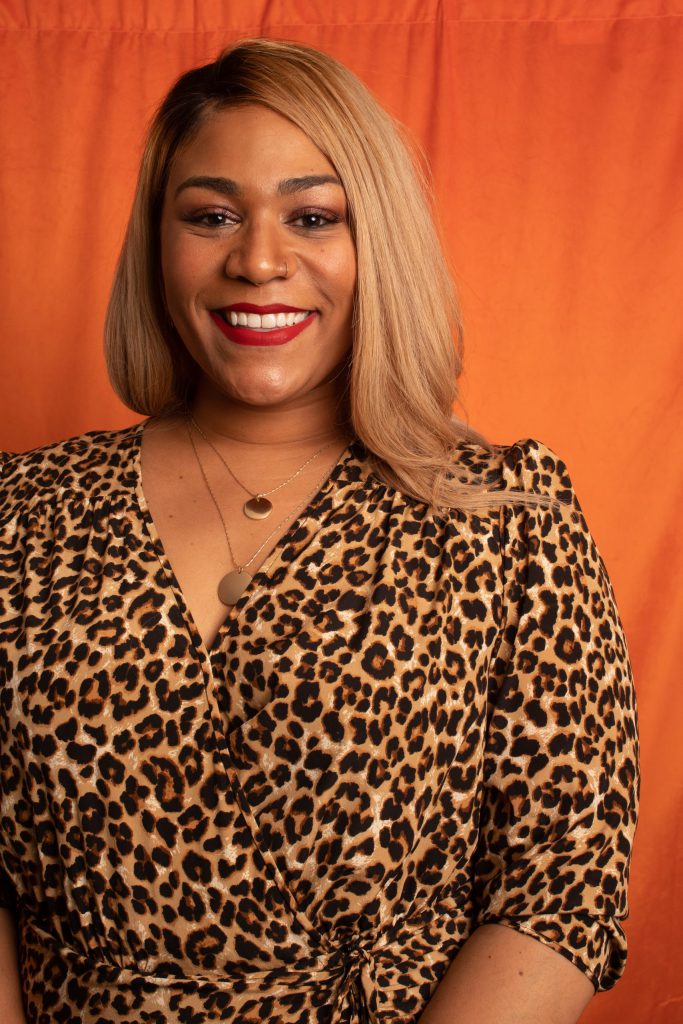
37. DANIELLE DERUITER-WILLIAMS
Co-founder & Head of Growth and Expansion, The Justice Collective
Oakland, California
Danielle DeRuiter-Williams believes organizations and companies can do — and be — better. Having worked in a number of nonprofits that were falling short of their missions because they were not investing the time and resources necessary to be great places to work, DeRuiter-Williams saw an opportunity to change the status quo. In 2015 she co-founded The Justice Collective, an equity consulting firm with a mission “to transform organizations by unlocking and uplifting the abundance within.”
The Justice Collective is a 100 percent women-of-color-owned company that focuses on partnerships and development with people of color and White allies who are committed to advancing equity, diversity, and inclusion and dismantling systems of oppression. In its first year with full-time staff, The Justice Collective surpassed its revenue goal of $1.1 million. In the last four years, the company has worked with dozens of organizations while spending virtually nothing on marketing; 95 percent of The Justice Collective’s clients are incoming requests directly from its network.
In addition to her role as Head of Growth and Expansion, DeRuiter-Williams founded the first-ever Racial and Social Equity Initiative at the San Francisco Planning Department, which has prompted agencies across the city to prioritize racial equity within organizations and the community. She also founded the Equity, Diversity and Inclusion Graduate Welcome Day at UCLA, which was the precursor to the Office of Equity, Diversity and Inclusion at UCLA.
What’s one key piece of advice you’d give to other women looking to excel as a leader in conscious business?
“When you get to the table pull up two chairs with you and fill them with Black women.”
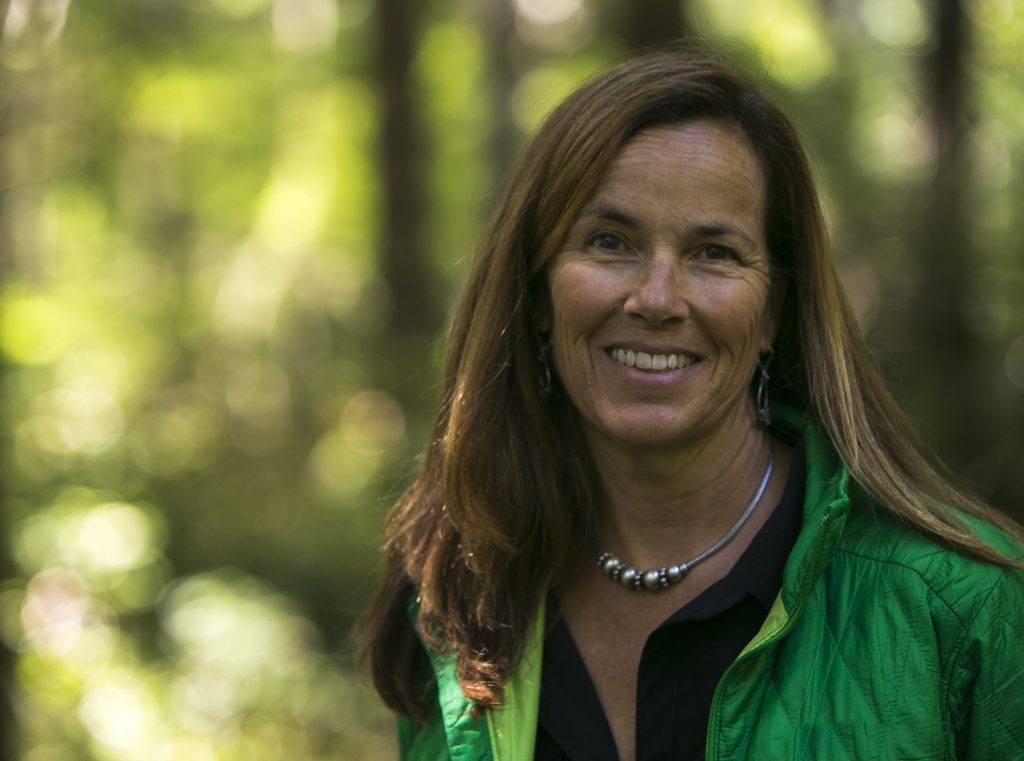
38. BETTINA VON HAGEN
CEO, EFM Investments & Advisory
Portland, Oregon
When Bettina von Hagen went into banking after getting an MBA at the University of Chicago, she initially loved the excitement of structuring deals and helping businesses succeed. One of her favorite clients, a recycled-steel mill, came to her with a financing request for an iron facility in the Venezuelan rainforest. “That was close to my backyard, as I grew up in Peru, and had a very good idea of the potential impact of a project of that kind on the forest and on indigenous communities,” says von Hagen. “It was a challenging moment because, on the one hand, my job was to advocate for and provide financing that my clients needed, and on the other hand, I understood the deep environmental and social consequences that might come from this particular investment.” Around that time, Spencer Beebe was starting Ecotrust (EFM’s nonprofit affiliate), which sought to use capital and market solutions to advance environmental and social solutions. As this perspective aligned with her growing perspective on the appropriate role of business, von Hagen joined the team.
EFM is a real asset investment manager that invests in working landscapes, including forests, farms, and ranches across the western United States and beyond, to create long-term financial value as well as positive social and environmental impact. In addition to being a five-star GIIRS-rated company, EFM is the first forest management company to be certified as a B Corporation.
Under von Hagen’s leadership as CEO, EFM has assisted the Coquille Tribe in re-establishing its territory and cultural traditions through the transition of 3,200 acres of forestland to the Tribe; has successfully launched three investment funds that have transitioned over 100,000 acres into Forest Stewardship Council certified forestland, the gold standard for sustainable forestry; has stored 6 million metric tons of carbon, equivalent to the annual emissions from more than one million cars; has restored 500 miles of streams to benefit threatened fish species and protect drinking water; has created 67 jobs supported directly and indirectly through forest management activities in 2018; has transitioned 6,500 acres to long-term, permanent owners including tribes and government agencies; and has consistently been named by ImpactAssets as one of the 50 best investment fund managers in the world.
What’s giving you hope?
“I am constantly inspired by how resilient and forgiving Nature is when we stop damaging activities, while sobered by potential tipping points, and I am deeply hopeful about the activism and moral authority of youth in demanding that we live within our limits.”
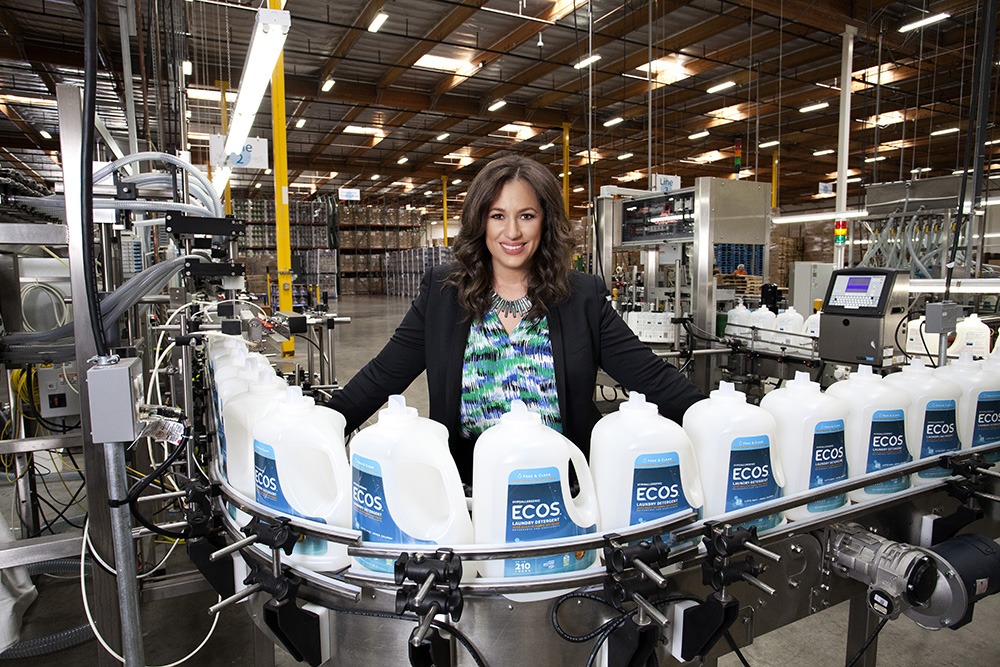
39. KELLY VLAHAKIS-HANKS
President & CEO, ECOS
Cypress, California
Kelly Vlahakis-Hanks has always had a passion for human and planetary wellness and translated that passion into bringing safer cleaning products to people around the world. Inspired by her mother’s battle with cancer at a young age and her father’s groundbreaking work in green chemistry, she is transforming the cleaning products industry with innovative, plant-powered solutions and sustainable manufacturing practices.
What is the role of business in making the world a better place?
“I think that business often has the opportunity to make a direct impact on human and environmental health more quickly than public policy can create. It’s clear that business needs to take the reins rather than sitting around and waiting for the government to save us. Because the truth is, we must all realize that toxic chemicals and climate change are bad for business. It’s not a partisan issue; we all have to agree that a healthy planet must be a global priority. And without it, nothing else matters.”
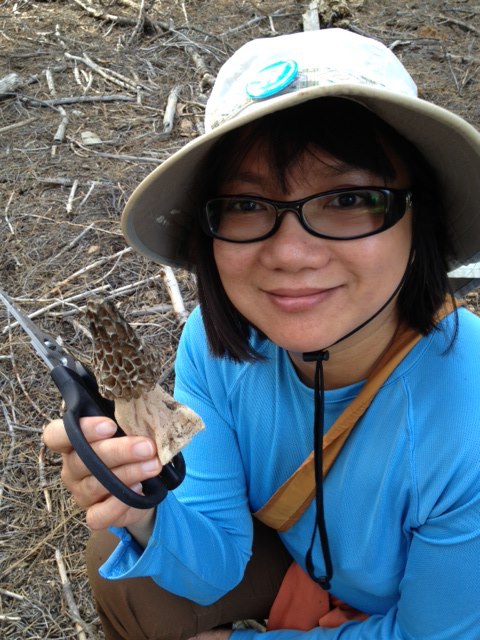
40. ROSE PENELOPE YEE
Co-founder & CEO, Green Retirement, Inc.
San Francisco, California
Rose Penelope Yee’s formative years were spent in the Philippines as a Martial Law baby and saw how an economy can be rigged so that the powerful few had excessive riches while the majority struggled to make a living. Later on, as a working mother, she lived what most working people live: checking in one’s values at the door when stepping into work. When co-founder Timothy Yee and she started their firm, Green Retirement, Inc., the duo knew just how predatory the financial services industry can be. “We wanted a firm that represented who we truly and fully are,” Yee says, “so that when we, our employees, and our clients walk through the door, we will all carry our whole selves knowing that our values will be heard and considered in the important investment decisions we make.”
Green Retirement is the first-ever advisory firm in the country that is focused on fossil-free and socially and environmentally responsible 401ks. The company has advised more that 70 retirement plans across the country and helped thousands of working people feel empowered by investing their retirement savings in alignment with their values.
Along with Sara Schley, CEO of Seed Systems, and Kim Coupounas, Global Ambassador of B Lab, Yee co-leads #WeTheChange, a movement of “empowered women creating a radically inclusive and richly regenerative global economy,” comprised of women leaders of certified B Corporations and other purpose-driven enterprises. This year, #WeTheChange received one of the first-ever B Collective Awards. In 2015, Yee was recognized by the National Association of Plan Advisors as one of the captains of the industry in its inaugural recognition of the role that women play in the retirement plan industry, and in 2018 she was honored with a B Economy Leadership Award for her efforts in helping B Corps B2B’s connect, build, and grow their businesses.
What makes a good leader?
“A truly conscious leader has the company vision crystal clear in her mind, executes the mission with precision, and is equipped with the skills and experience needed to pivot when faced with barriers and curve balls. She engages with her whole self, listens with empathy, and empowers others to succeed. She is compassionate with mistakes and learns from them. And, perhaps most important, she can laugh at herself!”

41. MICHELLE CIROCCO
Chief Social Responsibility Officer, Televerde
Phoenix, Arizona
Michelle Cirocco is helping to unleash human potential — the way Televerde did for her. The company was founded in 1994 on the belief that if women in prison are taught transferrable business skills, they will be able to find meaningful work and take care of their families after release. One of these women is Cirocco, who began her career with Televerde during a prison sentence in 1996 and then decided she would use the opportunity to change the trajectory of her life. More than 20 years later, Cirocco is the company’s Chief Social Responsibility Officer.
Since Televerde’s inception, more than 3,000 incarcerated women have been hired, compensated, trained in the art of sales and marketing, and certified in sought-after technologies like Marketo, Salesforce and Eloqua. This deep level of knowledge and on-the-job experience combined with the re-entry services provided by the Arouet Foundation, a 501c3 Televerde founded in 2011, enables them to pursue careers at the company’s corporate office, with its clients, and with other high-tech companies in the Phoenix area and beyond.
Forty percent of the almost 150 employees at Televerde’s corporate office began their careers on the inside, including 30 percent of Televerde’s leadership team.
The company’s unique business model boasts a recidivism rate of less than 5.5 percent, compared to the national average of 68 percent. The first-year employment rate for the women of Televerde is 94 percent, compared to the national average of 55 percent for returning citizens, and their average first-year income is three times the average of other returning citizens — and that continues well beyond five years after release.
To achieve Televerde’s mission to provide 10,000 life-changing opportunities to disempowered people over the next decade, Cirocco has helped lead numerous initiatives, including TEDxPerryvilleCorrectional, the first TEDx event to occur inside an Arizona State prison, and Televerde’s expansion into a second location in Indiana — Madison Correctional Facility — in November 2019. Cirocco is also on the board of the Arouet Foundation, helping to deliver a three-year transition program for Televerde employees.
What’s giving you hope?
“After almost 25 years of involvement with prisons and the criminal justice system, what I see and experience in the world today is what gives me hope. The entire world is becoming aware and empathetic to the fact that we simply cannot discard people for the rest of their lives, based on the worst decisions they made in their life. We are in the midst of a sea change. People, businesses, governments, celebrities, media; everyone is recognizing that it is time for change, real change in the way we deal crime, punishment, addiction, mental illness, homelessness, etc. We are receptive to new ideas and getting involved. I believe the world is becoming a kinder, gentler place that will ultimately result in better solutions to solving some of our biggest societal issues.”
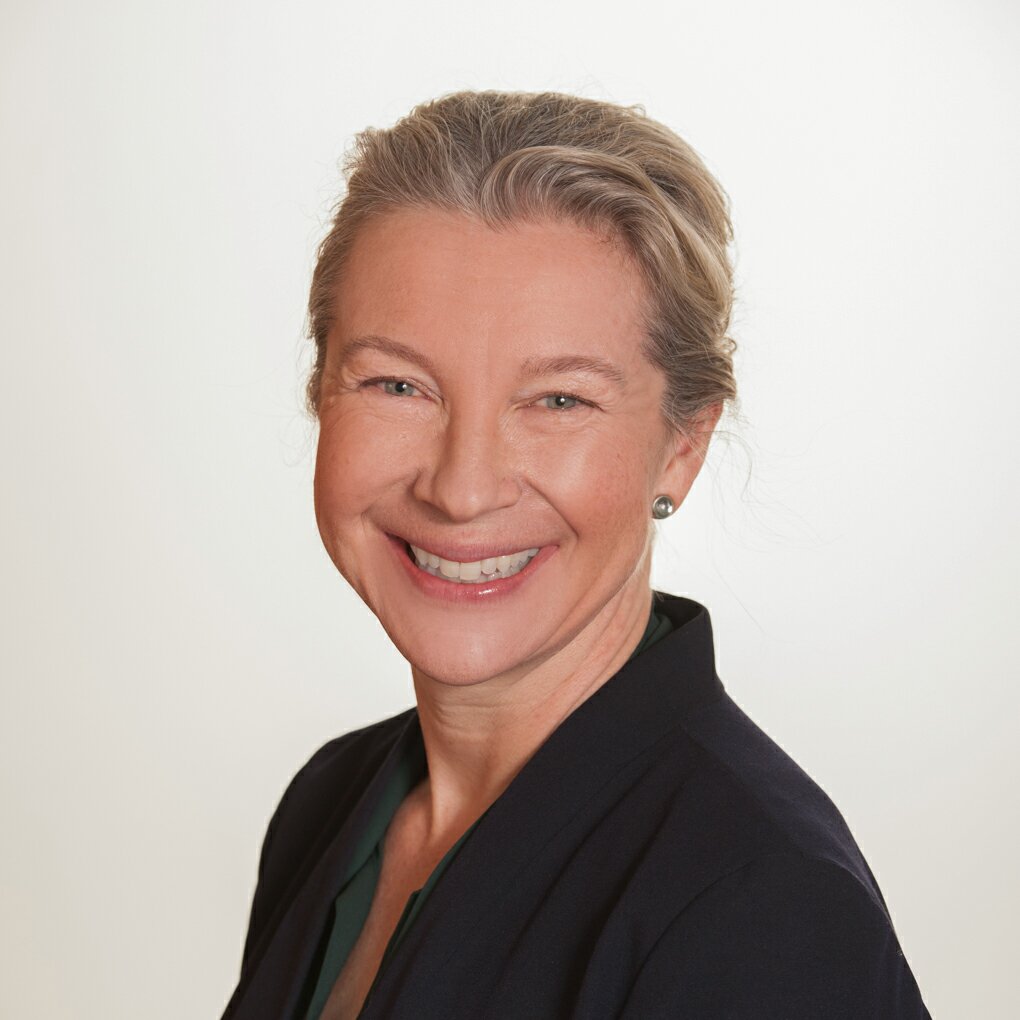
42. LESLIE SAMUELRICH
President, Green Century Capital Management
Boston, Massachusetts
While studying economics in college, Leslie Samuelrich, disheartened by the treatment of the environment as an externality in traditional models, started looking for ways to combine her passion for protecting people and the planet with her interest in public markets. However, in 1985, the field of responsible investing didn’t exist, and Samuelrich admittedly didn’t have enough experience or capital to start a firm. Instead, she worked for environmental NGOs and gained experience in and appreciation for corporate campaigns. “After some years, I grew frustrated with our place at the ‘kids table’ when asking companies to be more sustainable,” she says. When Green Century Capital Management was looking for a president, Samuelrich realized the role was the perfect conduit for her passion and skills.
Founded in 1991, Green Century is the first family of diversified and responsible fossil-fuel funds in the US. Aligned with the company’s mission “to provide individuals and institutions a way to invest with their values while providing competitive returns,” Green Century’s three-pronged approach includes sustainable investments, shareholder advocacy, and support of nonprofit environmental and public health organizations using 100 percent of the company’s fund-management fees.
Under Samuelrich’s leadership, Green Century’s AUM has increased a whopping 570 percent. One agreement with the world’s largest palm-oil producers has kept 1.6 gigatons of carbon pollution out of the air, and another agreement with Verizon to source more renewable energy is equal to taking 500,000 cars off the road each year. In 2019, Samuelrich was awarded the SRI Service Award by a vote of nearly 1,000 of her peers in the responsible investing field.
What’s one key piece of advice you’d give to other women looking to excel as a leader in conscious business?
“Strive to make a measurable difference, and don’t settle for anything that feels like greenwashing.”
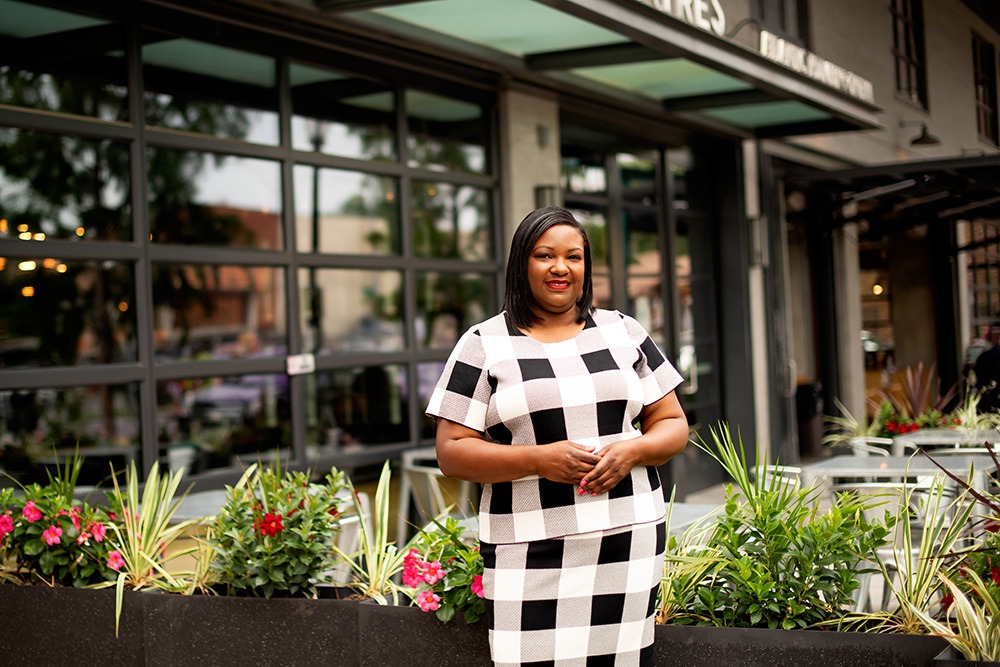
43. TERESA HODGE
Co-founder & CEO, R3 Score Technologies, Inc.
Co-founder, Mission: Launch, Inc.
Baltimore, Maryland
Teresa Hodge is committed to reducing the lasting harm prison causes to individuals and their families. After completing a 70-month federal prison sentence, Hodge co-founded Mission:Launch, Inc., an organization dedicated to improving the economic health of individuals living with records, with her daughter Laurin Leonard. What Hodge discovered was that, without challenging current risk models and vetting tools used by most businesses, people with criminal records would always be seen for who they were in the past and not for their current accomplishments. In 2017, the mother-daughter duo founded R3 Score Technologies, a software-as-a-service business solution tailored for the 1-in-3 Americans living with a criminal history.
R3 Score offers the benefit of context to a criminal history, allowing those living with a criminal record to be met with success when seeking suitable work, banking, housing, and educational opportunities. (The company itself hires individuals with a criminal history.) Since its inception, R3 Score has signed on five contract partners to help fund entrepreneurs with criminal records and has created three pilots that will allow R3 Score to be used in banking, in housing (leasing), and for small-business lending for people with criminal histories. In 2020, R3 Score is taking its product directly to the person with the greatest pain point — the person living with the criminal history — to give them a tool they can use as they seek to update their lives. The company’s goal is to score more than 6,000 individuals in 2020.
What’s a key piece of leadership advice you’ve found meaningful?
“Hiring can be challenging for a variety of reasons. You don’t always get it right. The best advice I received is when you realize you’ve made a bad decision, to be honest with yourself and the person, and provide a way out sooner versus later for the company and the individual. If possible, seek ways to help them with their transition, and become clear about the roles of each hire and the culture you are creating.”
A NOTE TO OUR SPONSORS
Thank you, Kate Spade New York, for being such wonderful mission-aligned partners in the production and promotion of this list! You are, yourselves, world-changing women.
How we compile this list:
The call for nominations went out in August 2019 with a deadline of October 15. Once the deadline closed, we pored over the submissions in multiple iterations, ultimately choosing a list of finalists based on the impact the women were making on the world, their demonstrated leadership in their respective fields, and the scope of their work and ambitions. In November, each finalist received an email notification with a link to complete the required finalist form. Those who participated made the official and final round.
